We want to extend a huge thank you to all the members of the media cluster that participated, held talks and keynotes, arranged debates, seminars and workshops, and in other ways contributed to the Future Week success.
During the week of 27 sept - 1 October, more than 50 events and several hundred sessions were arranged. More than 3,000 unique visitors participated - physically - in Future Week activities, in addition 1,400 on stream. 21 international startups from our EU programs MediaMotorEurope and STADIEM were in Bergen this week to pitch their great ideas for the media industry. Two new conferences were launched with bunches of enthusiasm and joyful people; The MCB Hack conference for data journalists and the Sports Conference for sports journalism and -production. Both were instant successes with fantastic feedback.
There were Future Week activities and programs in three cities, with brilliant deliveries from Bergen, Oslo, and Stavanger. We set up four workshops for investigative journalists and discussed the big and important questions: How can we ensure an informed and enlightened population in the future? There have been world-class speakers on stage to challenge our editorial mindsets, including Shirish Kulkarni, James Ball, Henk van Ess and John Burn-Murdoch, and together we have highlighted important stories such as the Estonian documentary and Kadafi Zaman's "The Norwegian Dream". We also dived into new technology such as AI and 5G, and showcased different storytelling formats and ideas. In parallel with this, the media cluster's research center, SFI MediaFutures, had its first annual meeting in Bergen with great success. The program was also spiced with entertaining and engaging sessions, everything from live podcasts (VG's Krimpodden, Klassereisen, and Eli Kari lurer på), to several weird, quirky, and peculiar sessions.
Together, we could do this because the Media Cluster members, representing a fantastic, committed, and creative community participate, get involved, tell stories, share, teach, explore, and collaborate.
Relive the experience that was Future Week 21 through an array of images capturing many of the moments we got to experience together, finally in person!
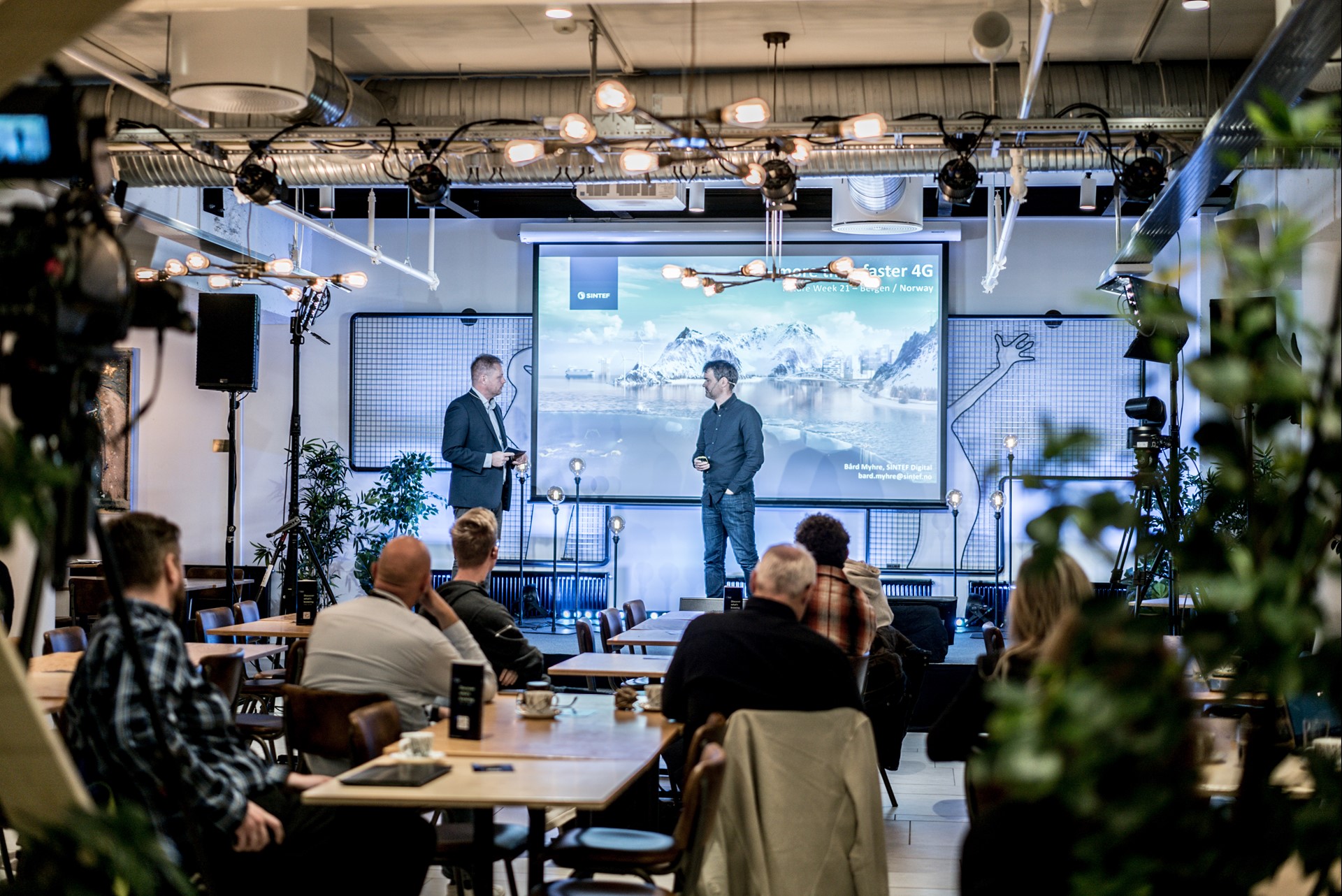
During the week's first breakfast meeting Bård Myhre (SINTEF Digital) explored opportunities 5G technology, and what this will mean for players in industry, transport, and media, to mention some. Kristian Bruarøy (Nordic 5G Consortium) hosted this breakfast meeting.
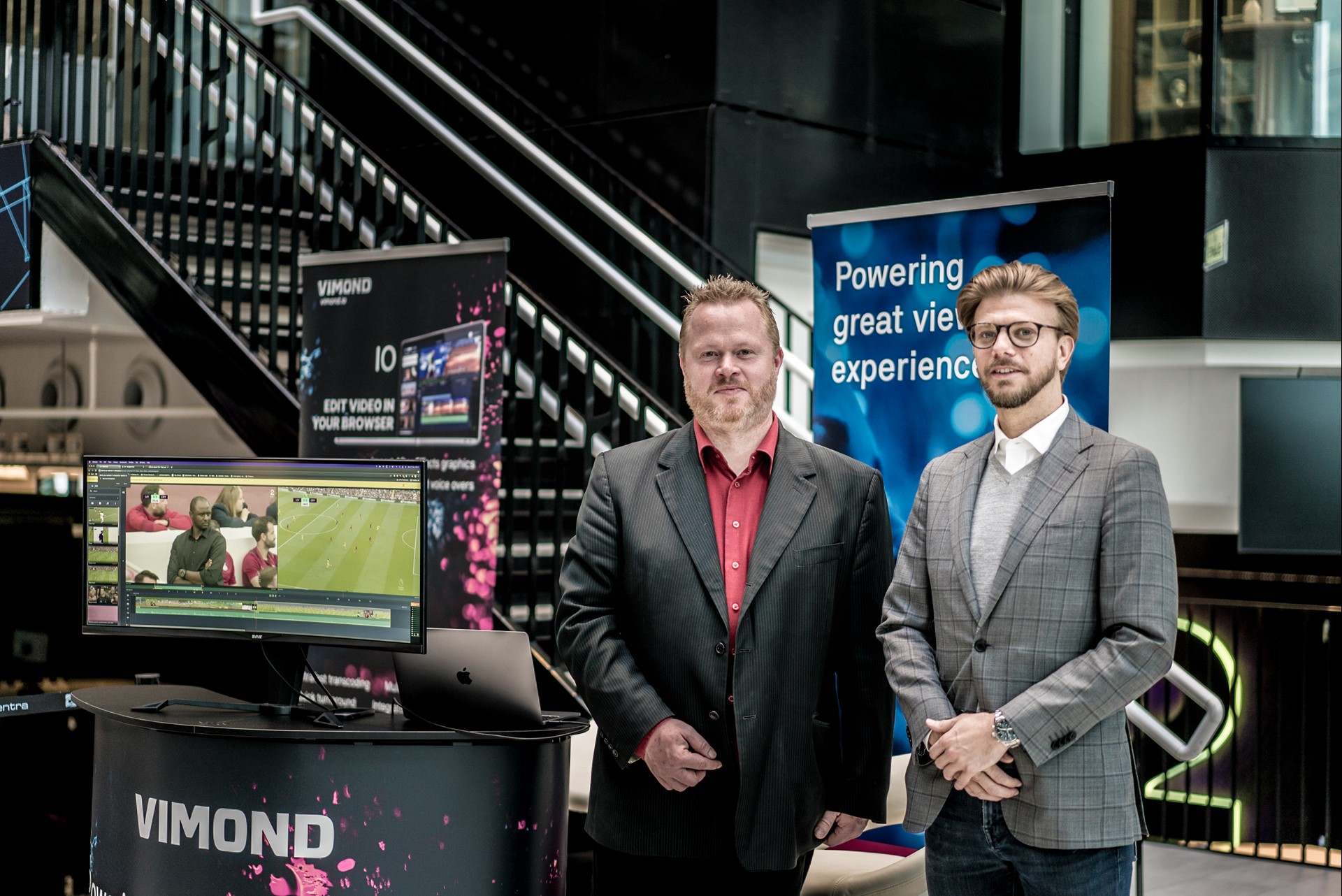
Vimond had a stand in the MCB atrium during Future Week, where they presented the benefits of cloud-editing and how you can optimize your post-production workflow using Vimond IO.
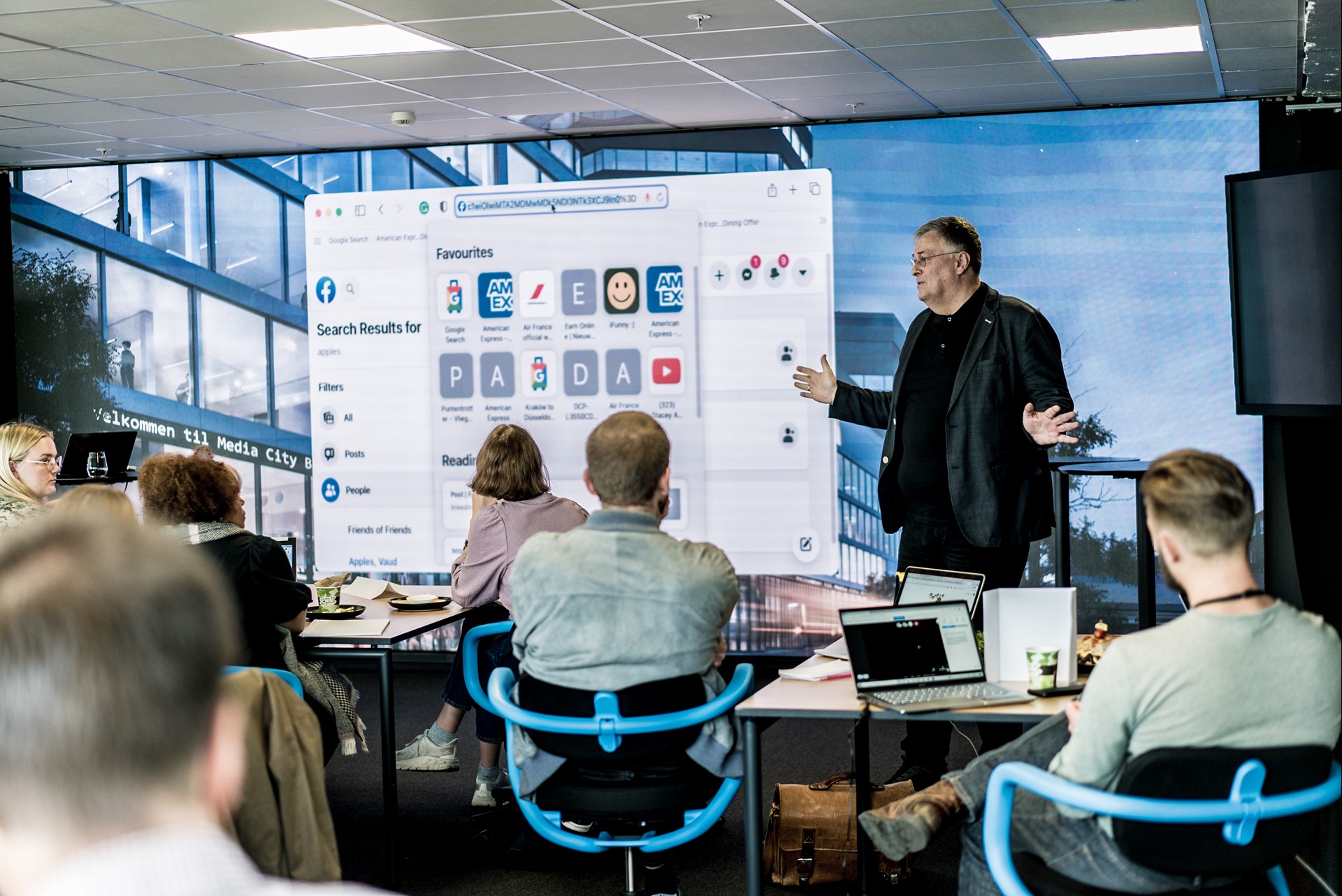
The first workshop of the Future Week 2021 was with Henk van Ess. The renowned search specialist taught the participants how to utilize social media in their everyday workflow.
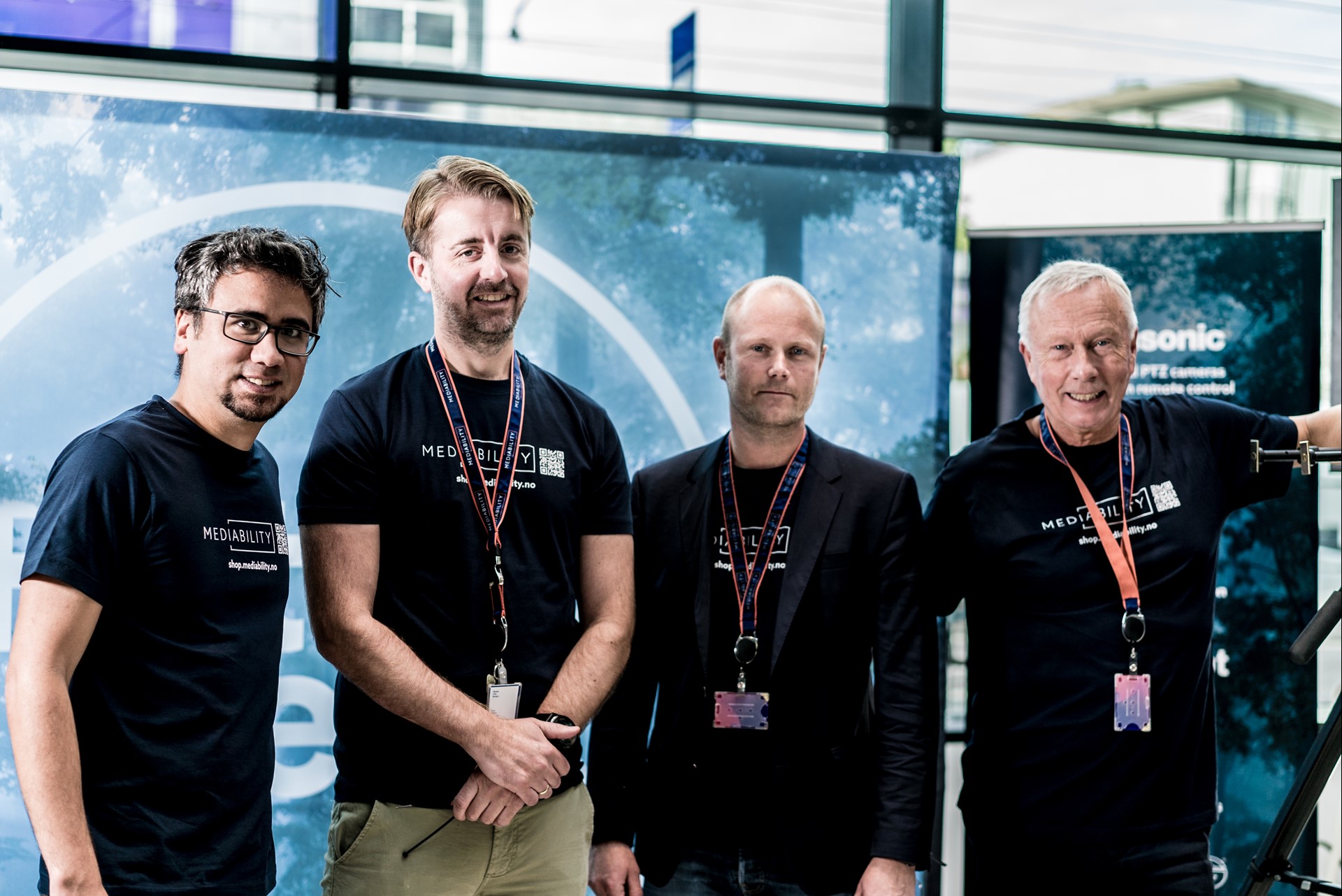
At the Mediability EXPO in the MCB Atrium, representatives from Panasonic, Vitec Group and NewTek presented their newest products in media technology.
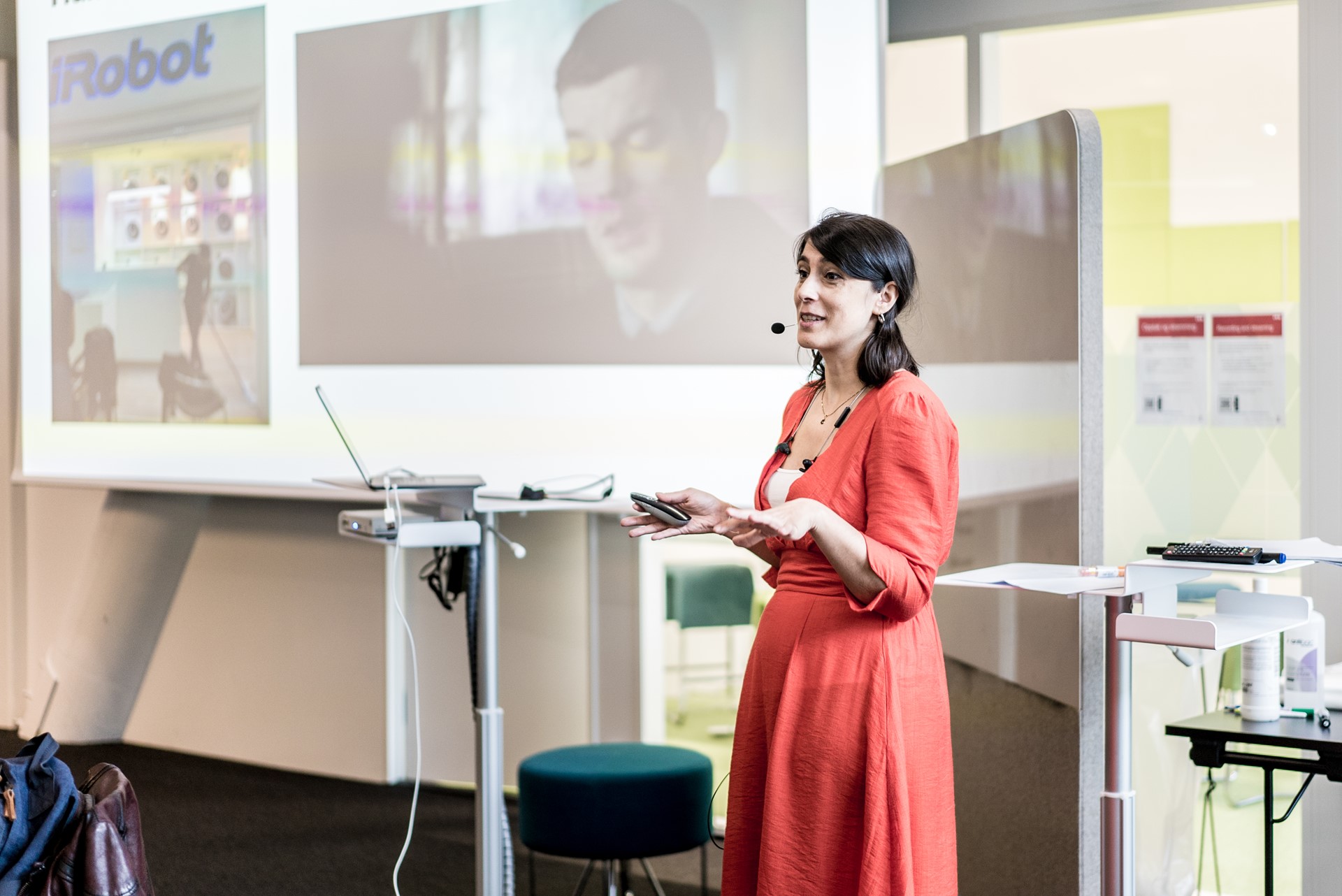
The University of Bergen (UiB) was once again a substantial contributor to Future Week and hosted several interesting events throughout the week. Professor Marija Slavkovik (photo) kicked off the sessions with a lecture on what deep learning is and what it is not, why it works better than statistical analysis, and why it does not equal intelligence.
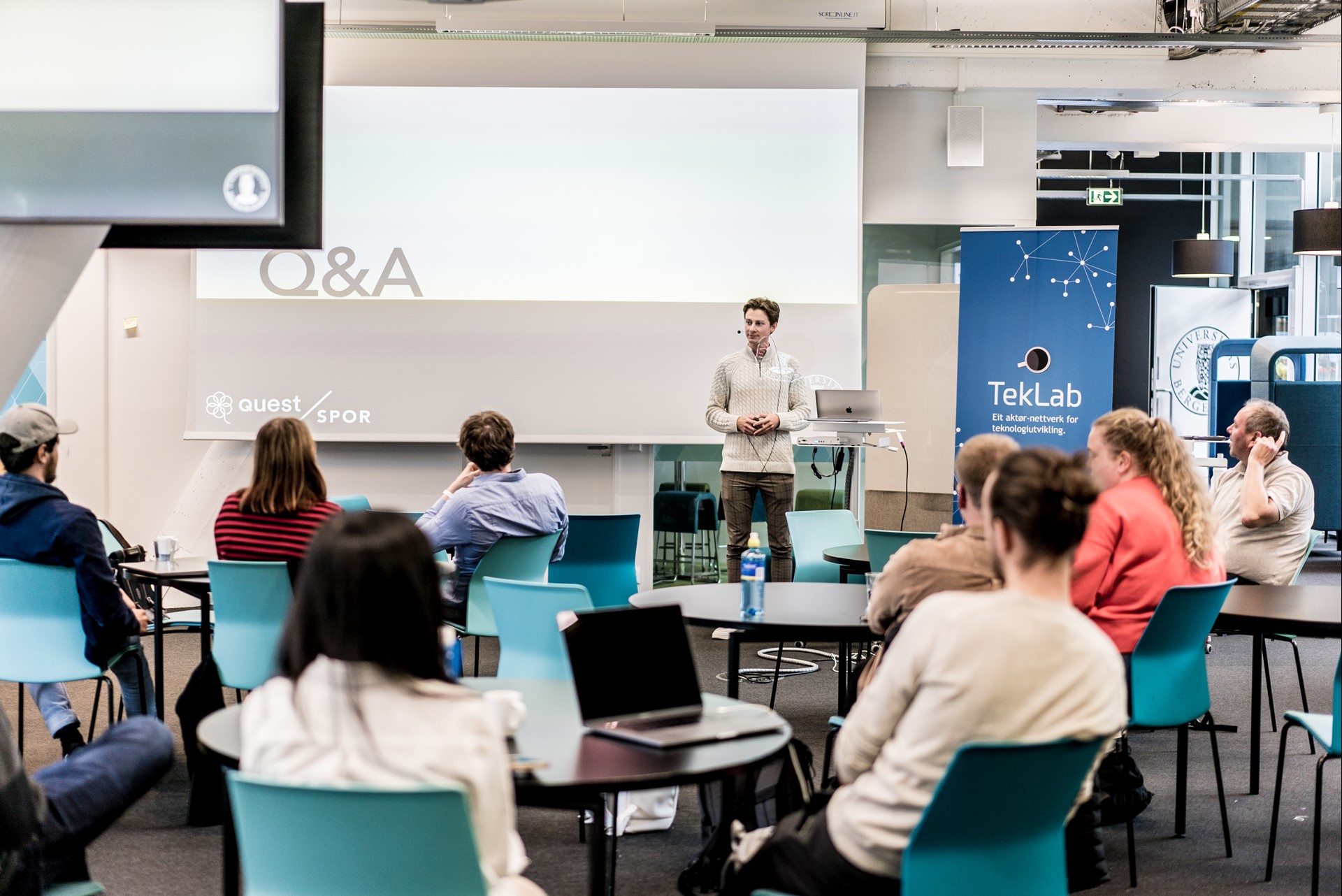
Several students from the University of Bergen presented their latest, innovative media tech projects.
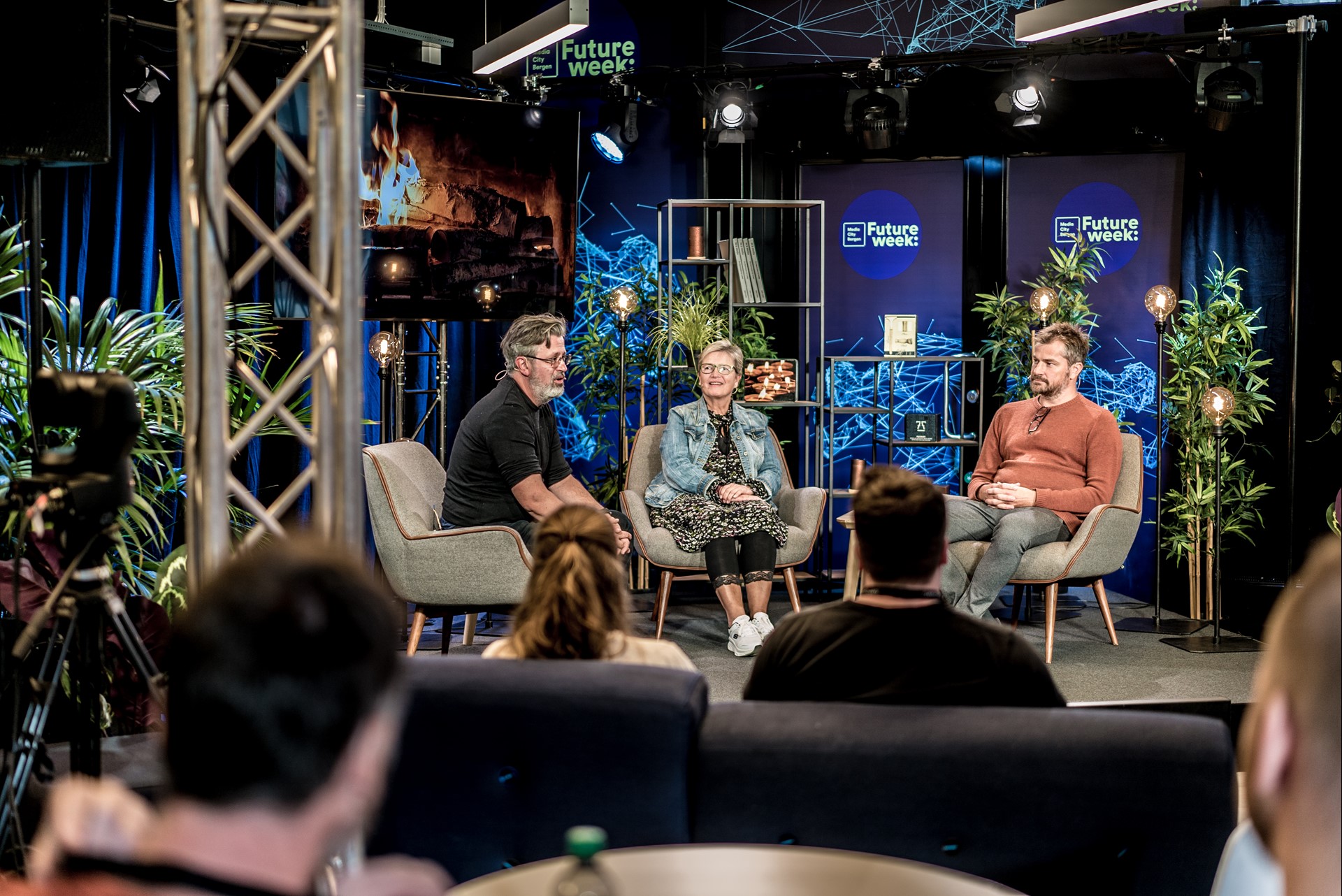
To wrap up Monday, Helge Høibraaten (Vimond) sat down for a fireplace chat with Grethe Hjetland (Highsoft) and Torstein Hønsi (Highsoft) to din into the enthralling story behind the great success that is Highsoft.
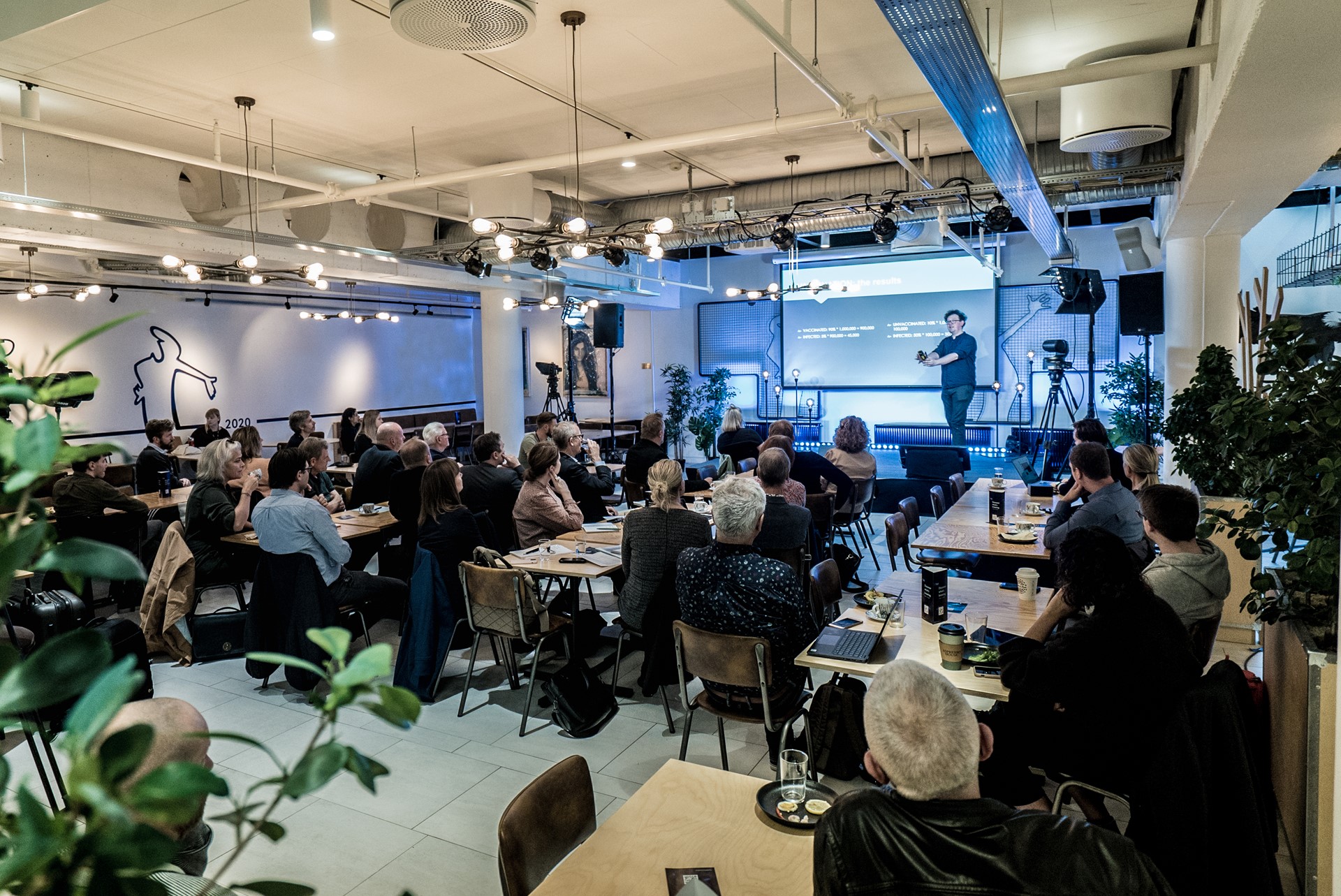
We had the pleasure of having James Ball, Global Editor of The Bureau of Investigative Journalism, doing several sessions for journalists last week, both in Oslo and Bergen. During Tuesday's breakfast meeting, he talked about how data journalists can sometimes forget that their readers don’t have the same resources on hand as them. He showed us how we can make sure that we don't lose the readers in the numbers, but rather focus on using our expertise for the benefit of the audience.
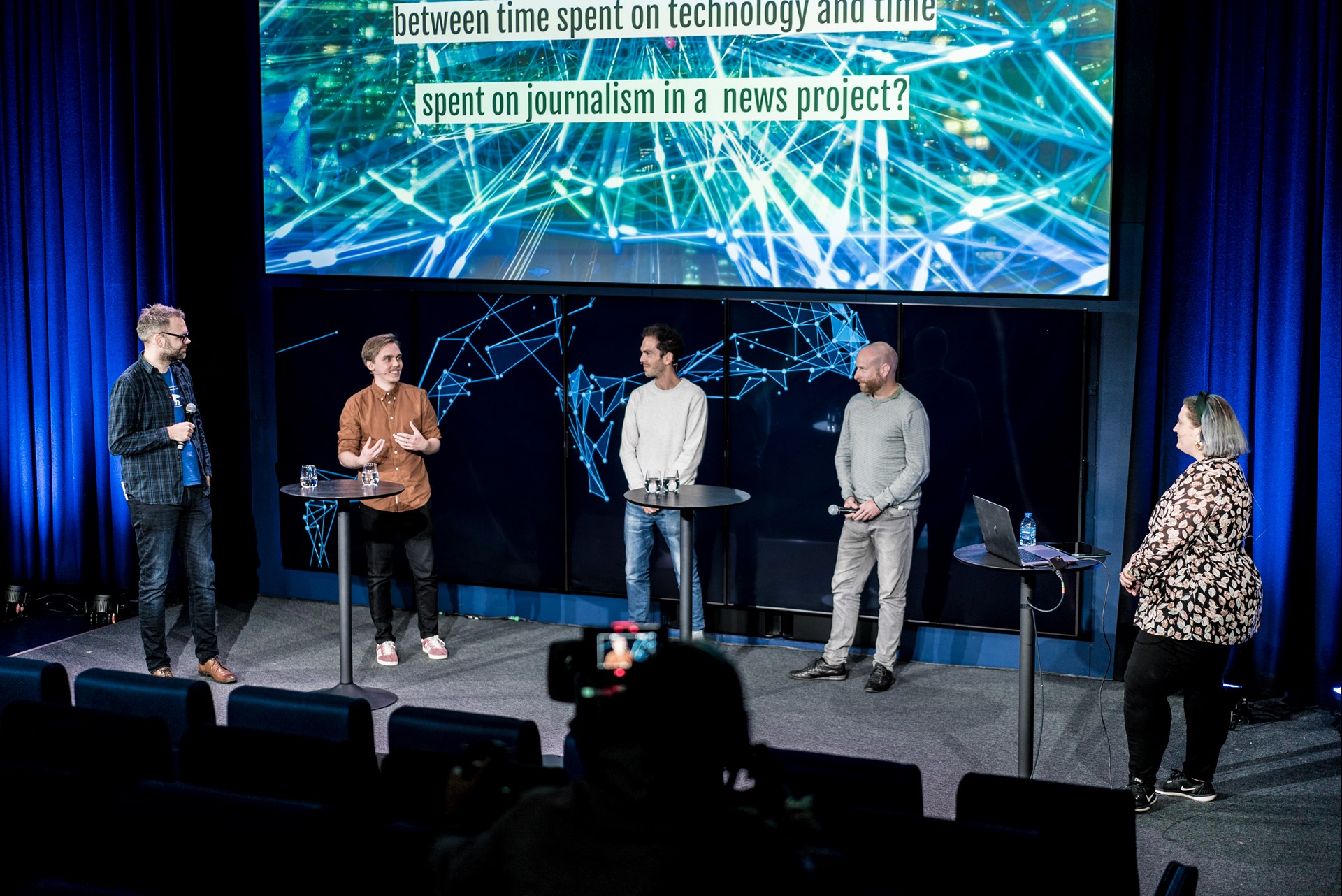
Future Week launched a brand new conference for data journalists; MCB Hack. The conference was wrapped up with a panel discussion between Lasse Lambrecths (Bergens Tidende), Topi Tjukanov (Finland), John Burn-Murdoch (The Financial Times), and Maarten Lambrechts (Belgia). The debate was moderated by Marianne Bouchart (HEI-DA).
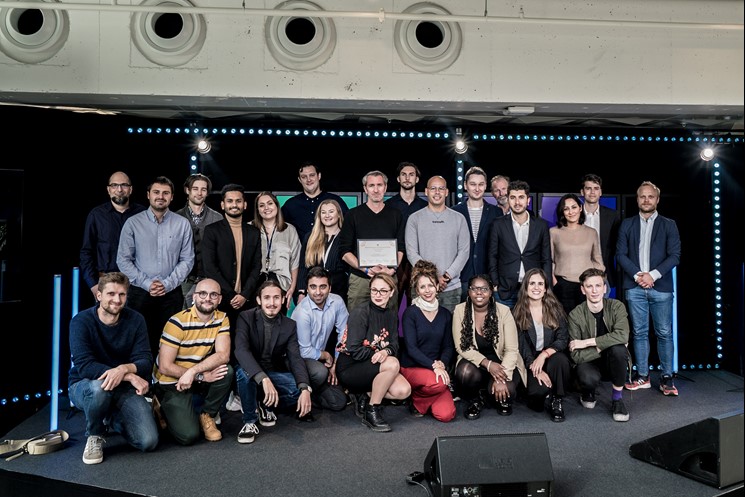
21 promising European media tech startups and scaleups from the Media Cluster EU projects were in Bergen for Future Week. MediaMotorEurope (MME) presented thirteen of these deep-tech innovators during the Mediatech Stars Pitching Contest. The startups gave the judges a tough job deciding the winner, ending up with Voxalyze as the winner of a two-year membership in the Norwegian Media Cluster. Welcome to the Cluster, Voxalyze!
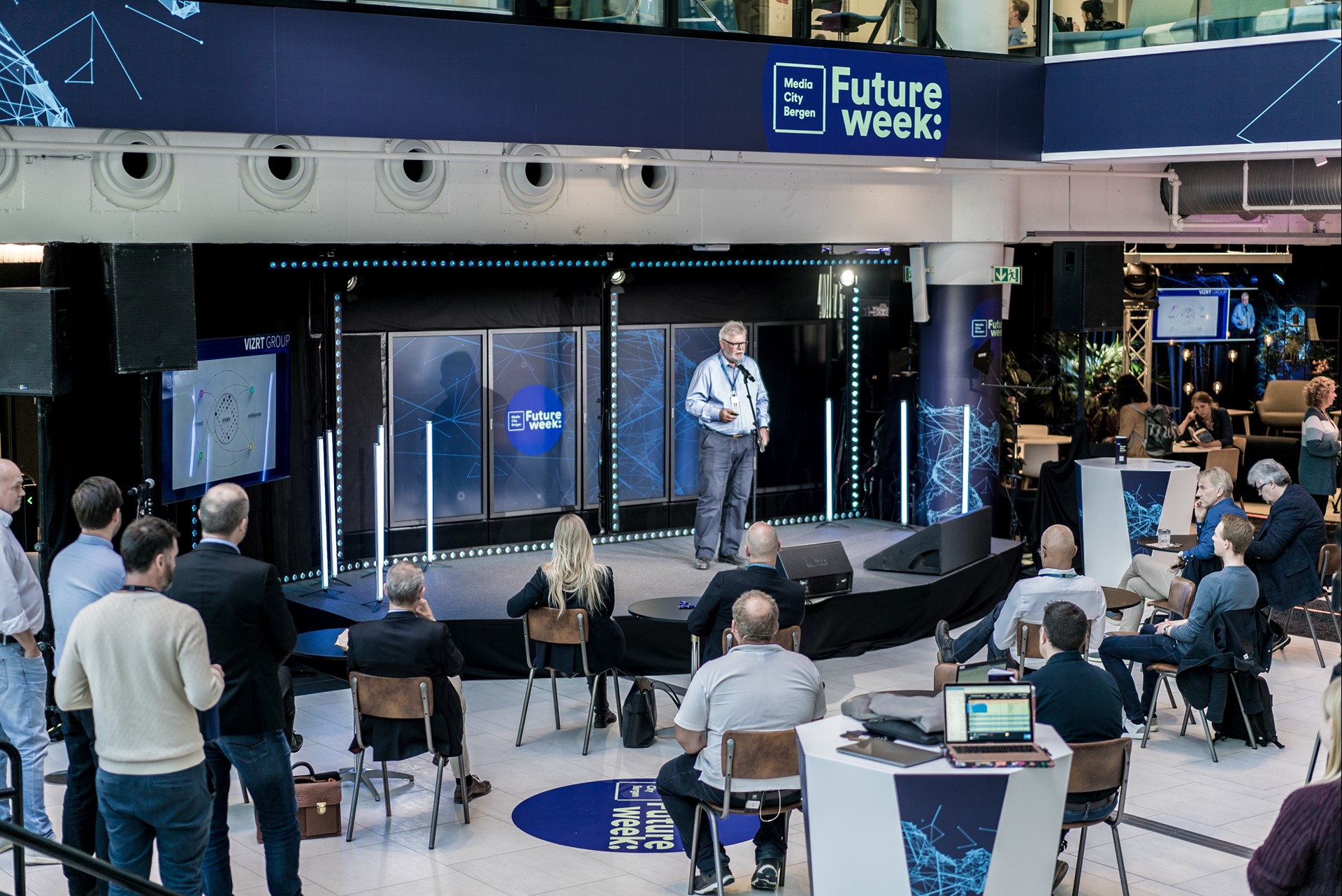
At the Media Cluster Relay, Petter Ole Jakobsen, Chief Technology Officer at Vizrt, explained how their company integrates with different other companies in the Media Cluster, and how they fit into the strong value chain many of our members make up.
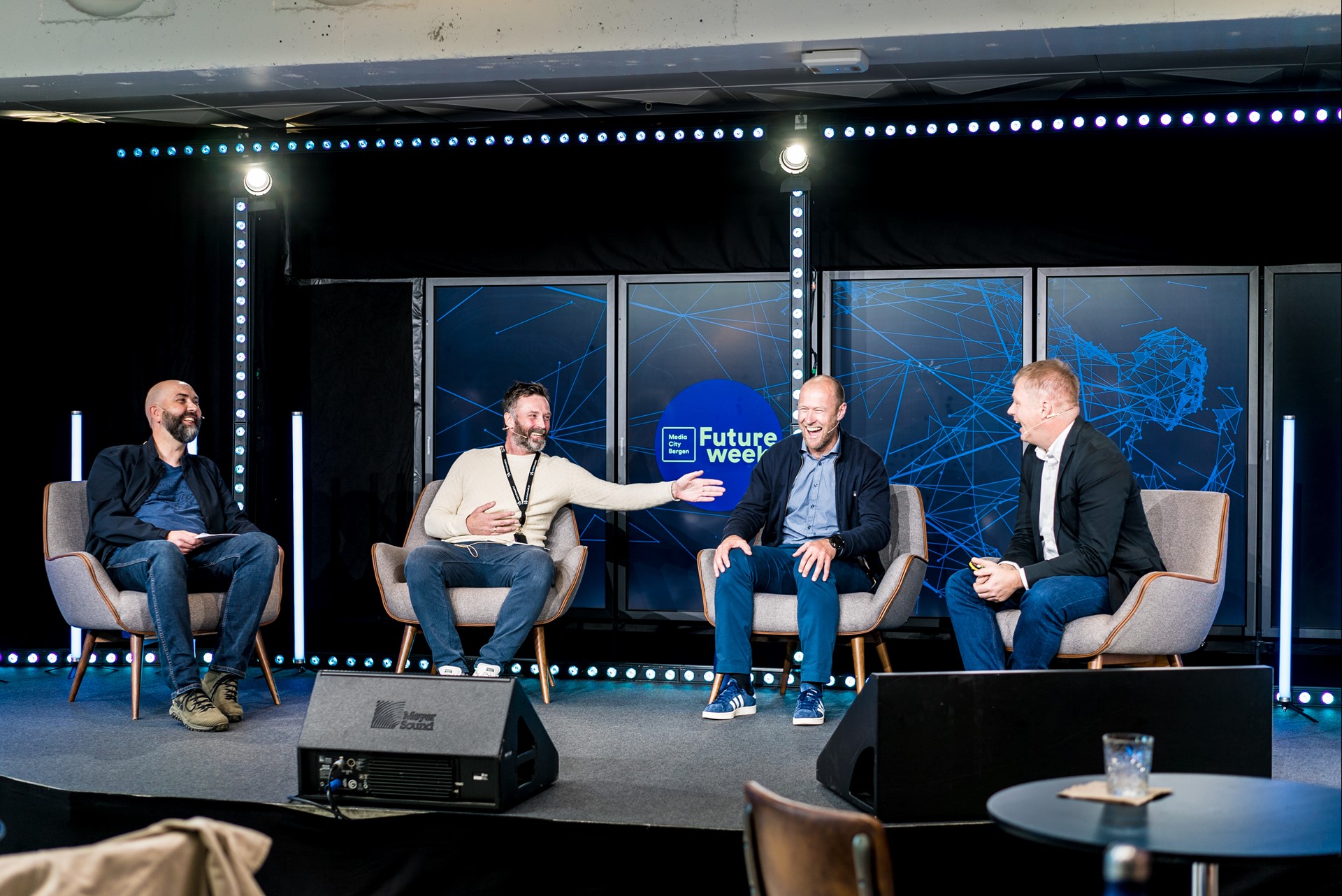
Kristian Bruarøy (Bridj) sat down with Finn Kåre Mongstad (Ljoma), Håvard Tveit (Everviz), and Torstein Skage (Chairman, Everviz and Highsoft) for a talk on how you can take different paths to realize an idea; entrepreneurship and intrapreneurship.
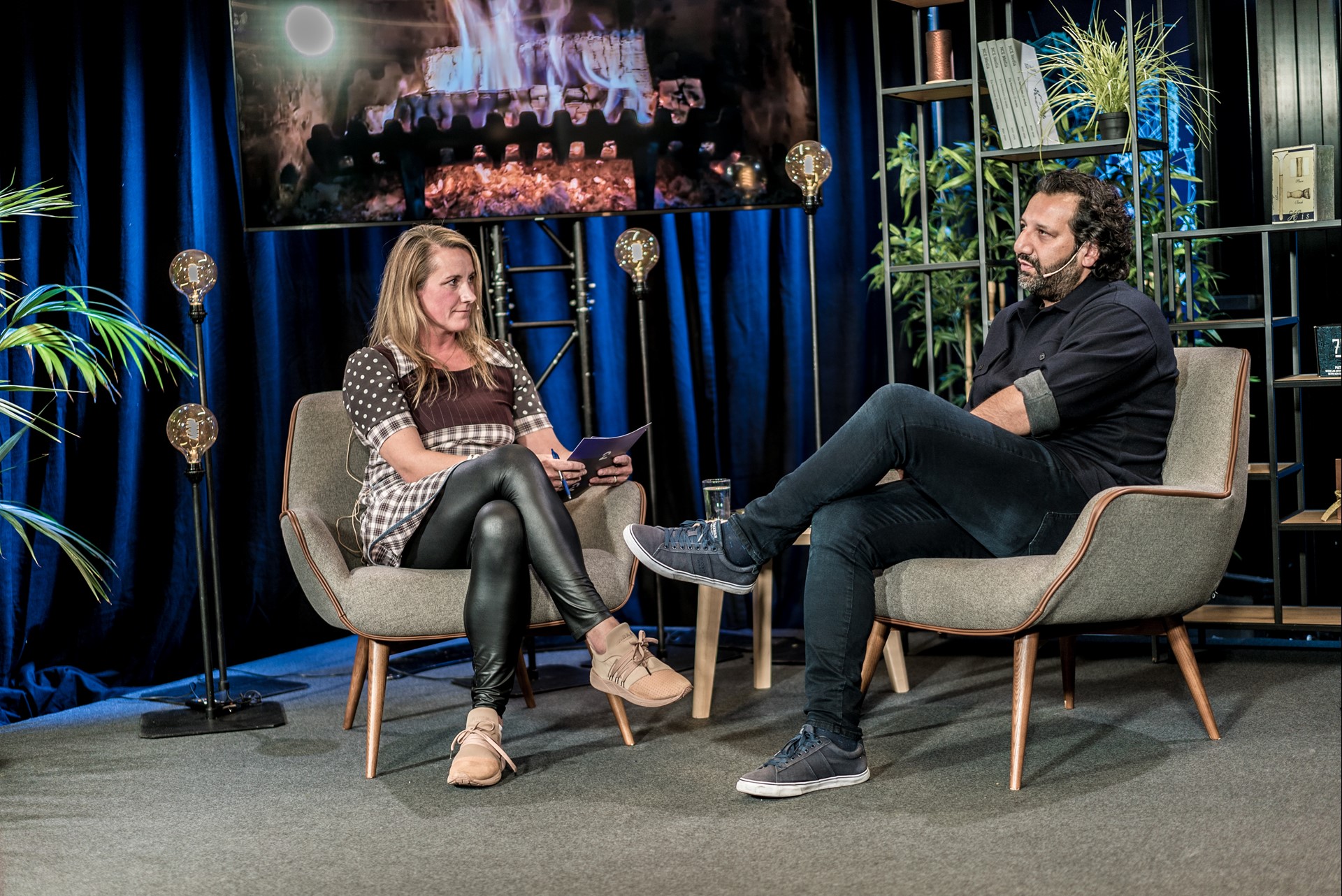
Aslaug C. Henriksen (TV 2) sat down for a fireplace chat with renowned journalist Kadafi Zaman (TV 2). He talked about his new book; "Den norske drømmen", about his interesting upbringing between two cultures, and his life as a journalist.
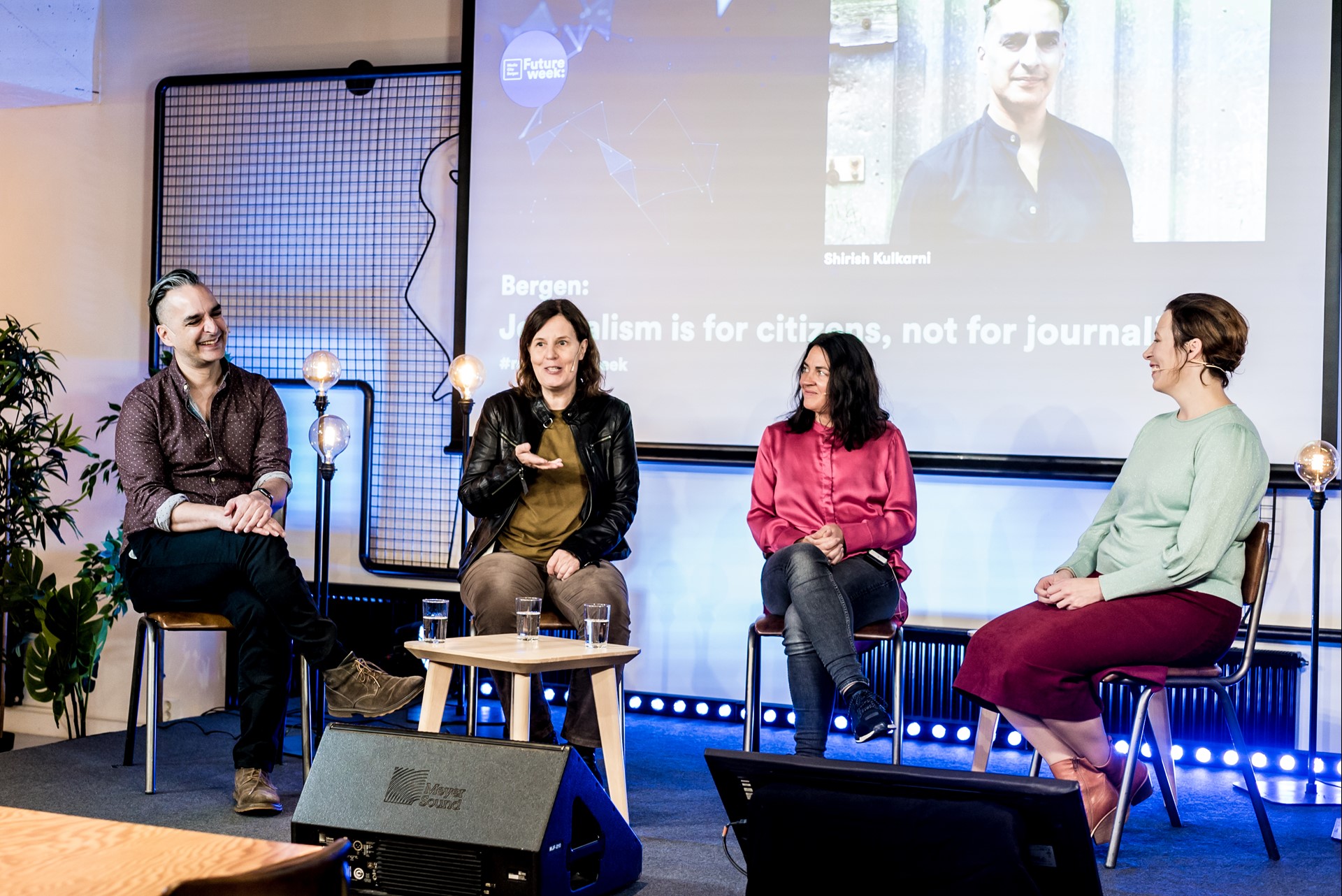
Shirish Kulkarni, award-winning journalist and researcher, was the keynote speaker at Wednesday's breakfast meeting. From his research on news storytelling and his work as a community organizer, Shirish outlined the difficult questions we need to start addressing, and set out a framework from which we can build change for the better future of journalism. The meeting was wrapped up with a debate where Kulkarni was joined by Frøy Gudbrandsen (BT) and Astrid Gynnild (UiB), moderated by Ingeborg Volan (DN).
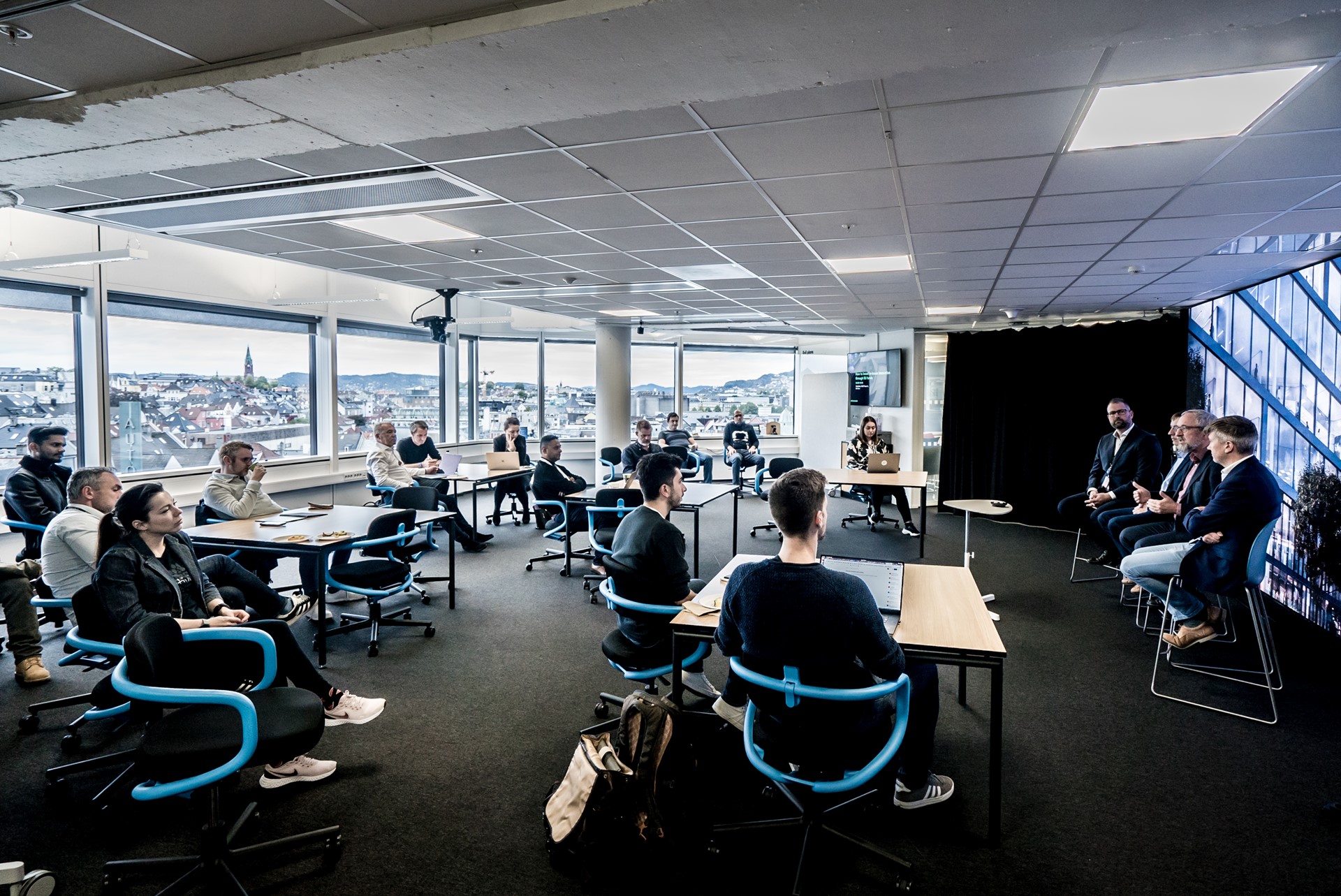
Sveinung Einan (Rainfall), Mike Matton (VRT), and John Erik Setsaas (Signicat) talked about their experience with working with the different options for EU funding, inspiring several of the companies in the audience to explore which opportunities EU funding can have for them. This meeting's host was Kristoffer Hammer (NCE Media/NCE Finance Innovation).
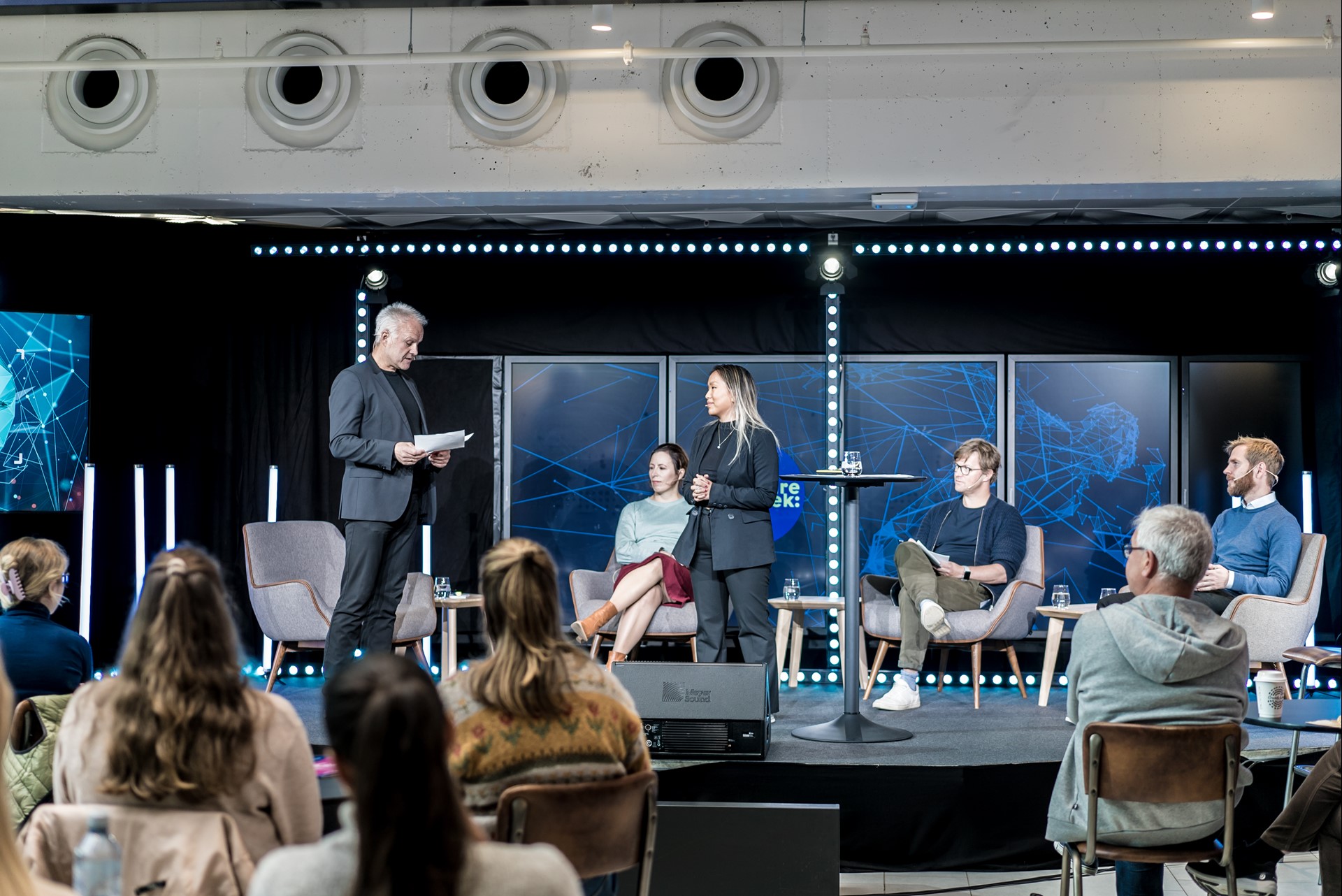
During this session, Maren Nan Myrseth (NRK) presented her master thesis, «Den automatiserte redaktøren». Ingeborg Volan (Dagens Næringsliv, Frode Guribye (UiB), and Christer S. Johnsen (Adresseavisen) participated in the following debate, led by Knut Helland (UiB).

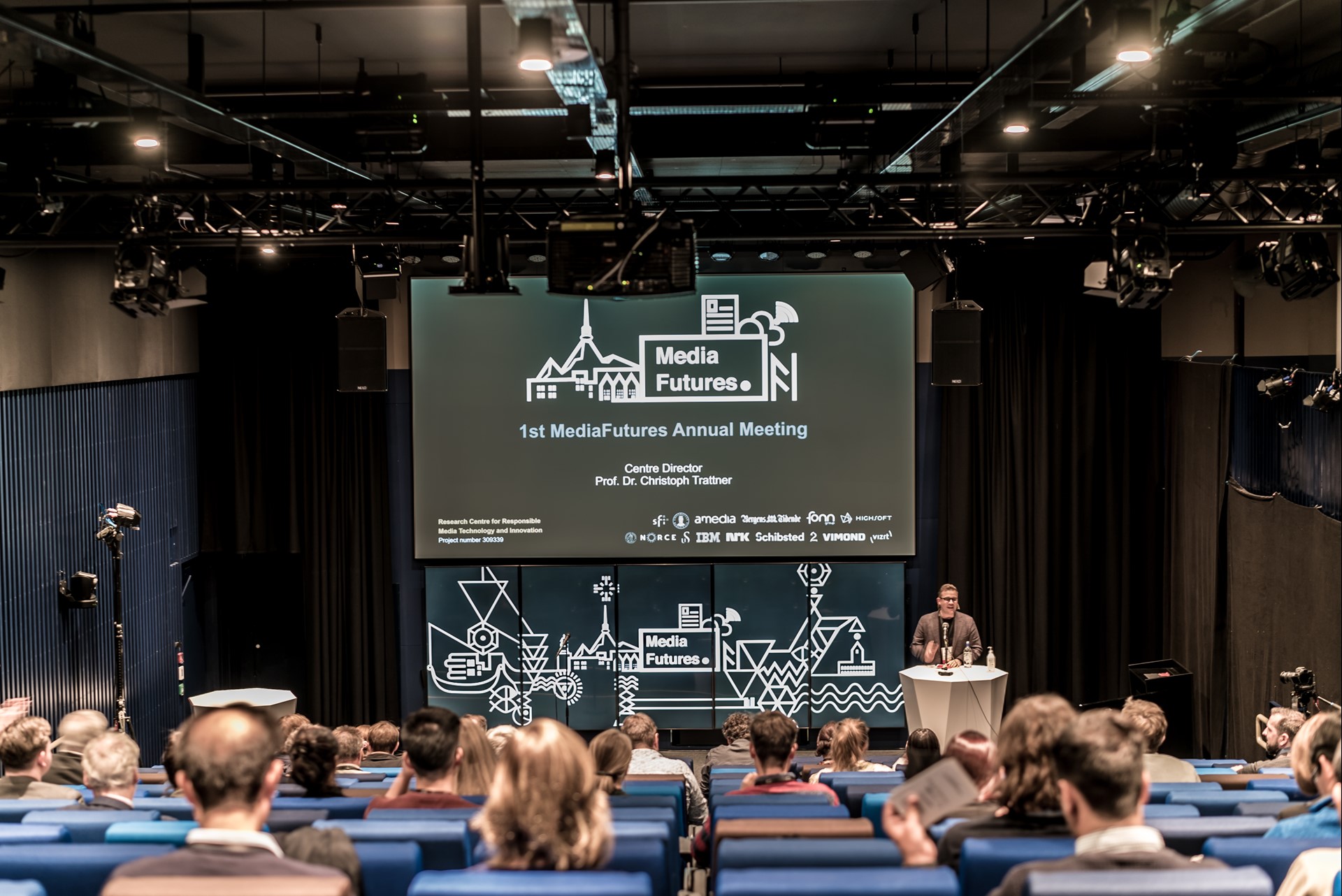
During Future Week, MediaFutures held their first Annual Meeting. Here, the MediaFutures team gave an overview and outlook of MediaFutures' activities, showcasing their recent research and innovation highlights from the last year. Pictured on stage is Full Prof. Dr. DI Christoph Trattner BSc, Centre Director at MediaFutures.
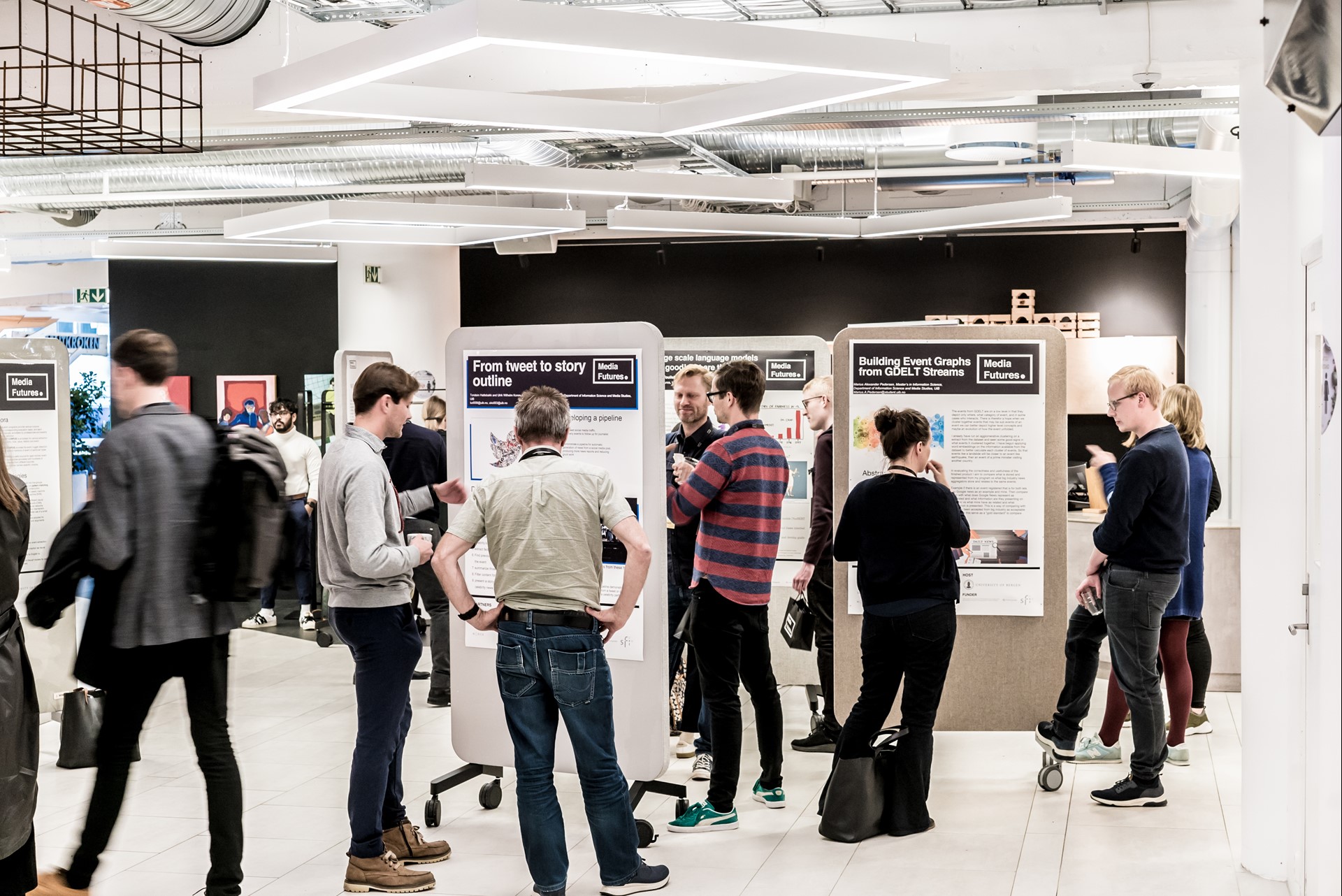
After the MediaFutures meeting, PhD candidates and graduate students presented their research and innovative projects to international researchers and industry participants in a poster session.
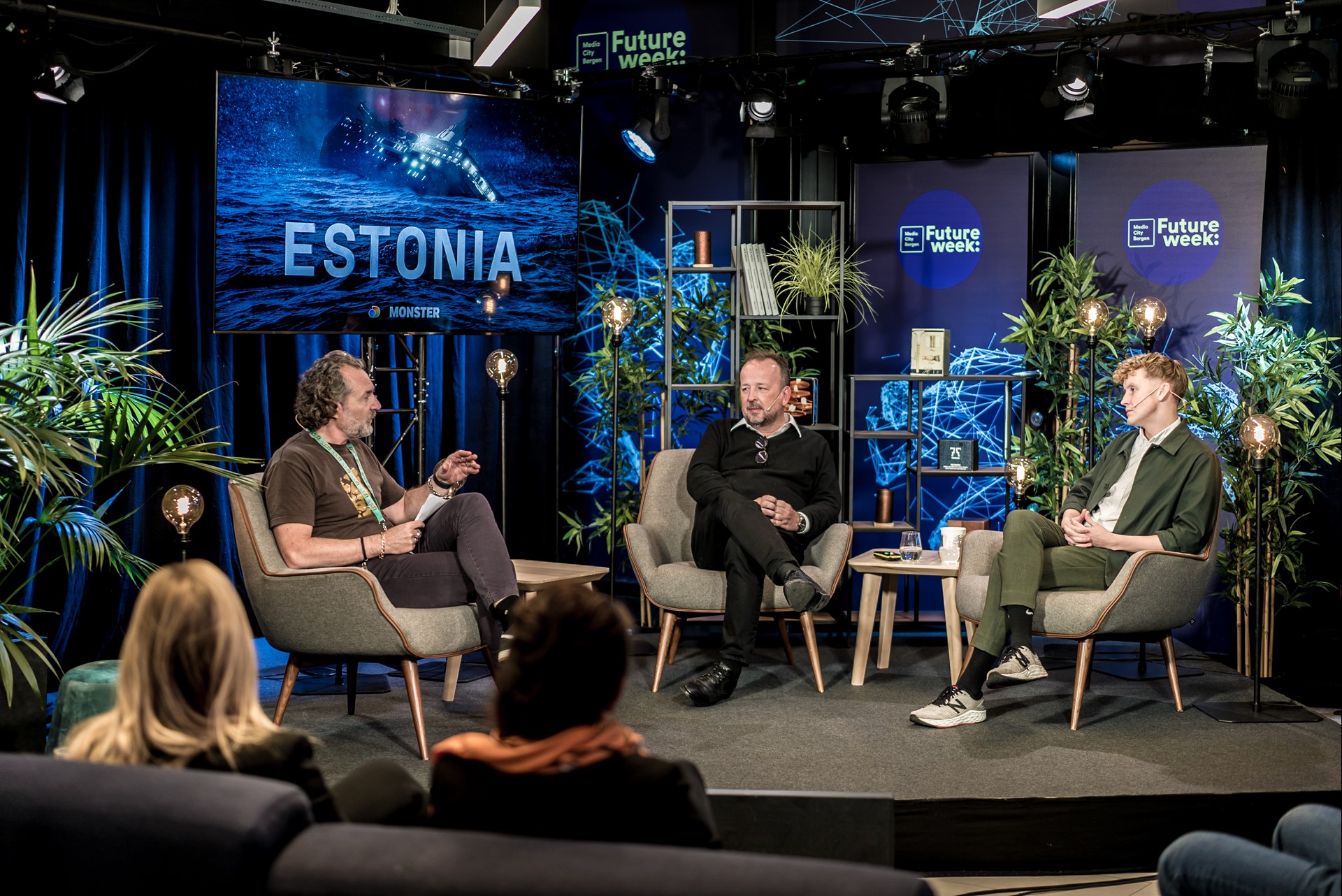
Producer Frithjof Jacobsen and director Bendik Mondal discussed their groundbreaking documentary series "Estonia", which has led to a new investigation into the Estonia capsize. Mikal Olsen Lerøen (UiB) interviewed them after the presentation and led a Q&A to delve deeper into their experiences in making this impactful series.
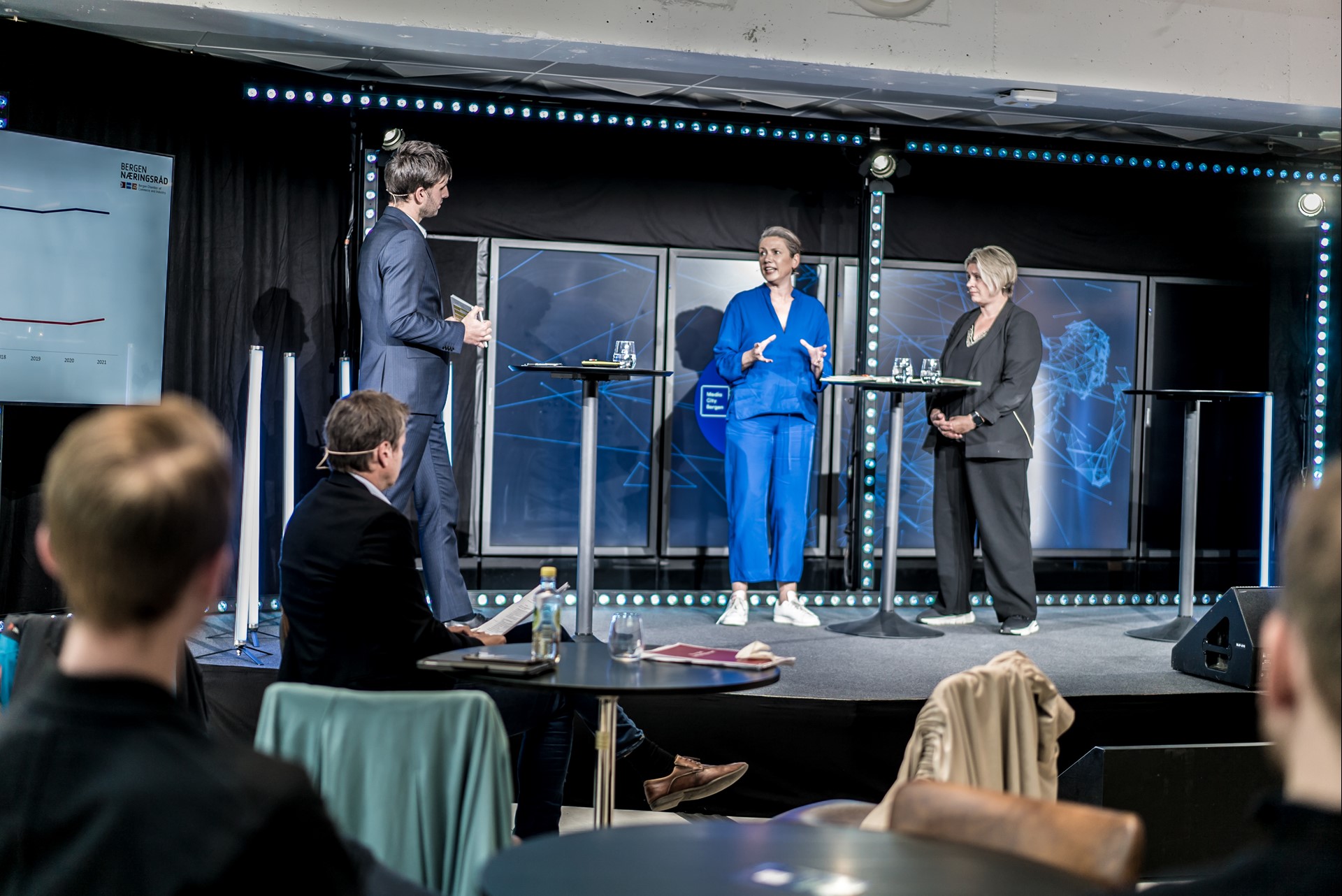
On Wednesday, we wrapped up a day of insightful events with a political debate on the innovation and entrepreneurship scene in Norway, in comparison to Sweeden. Here, Heidi Nordby Lunde (H) and Marte Mjøs Persen (Ap) are interviewed by Anri Hebib (Bergen Chamber of Commerce and Industry).
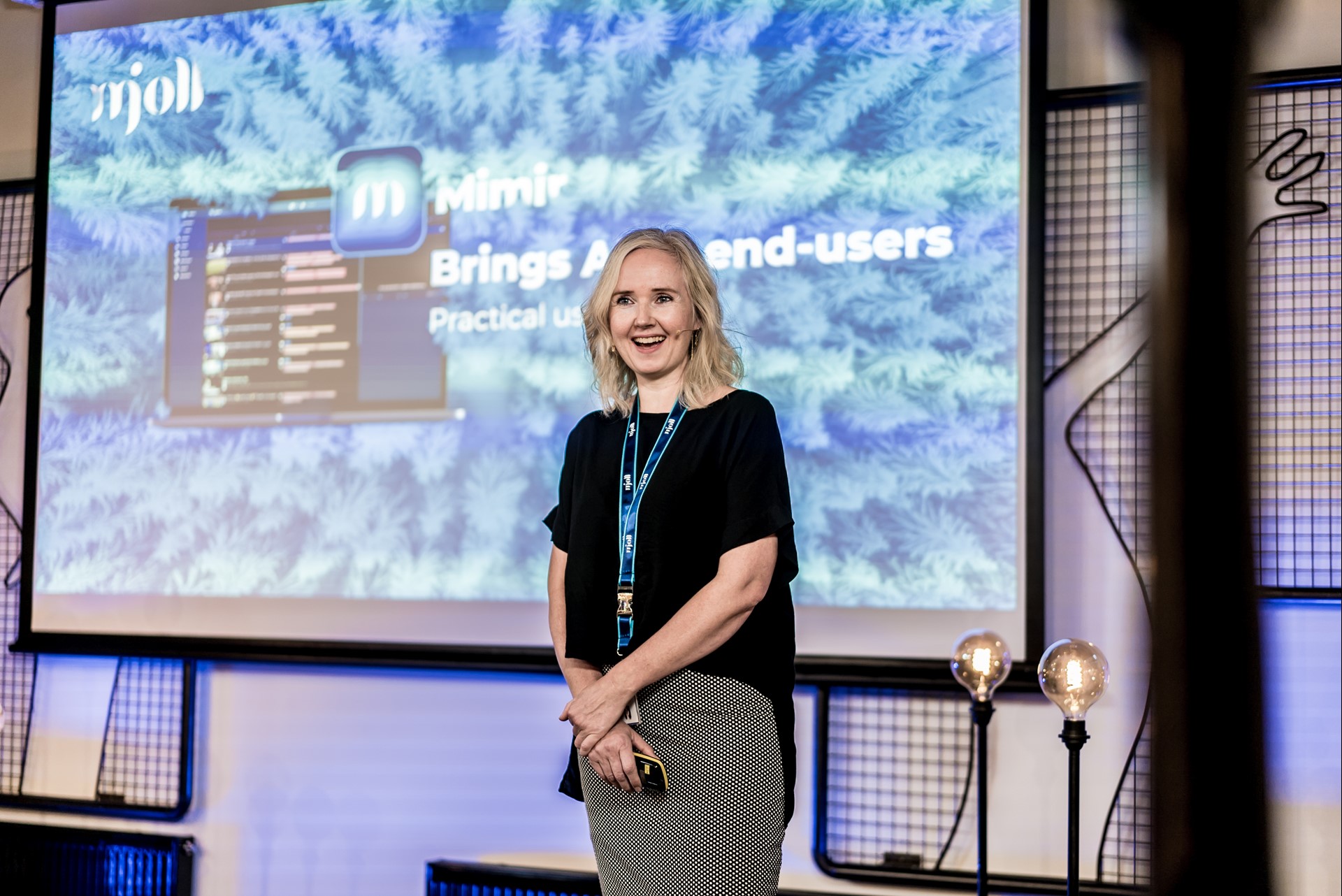
Among other guests at Thursday's breakfast meeting hosted by Norwegian Cognitive Centeron, we met Ingrid Agasøster (Mjoll). She talked about how Mjoll utilize AI in Media Production to make everyday life for journalists and video editors more efficient.
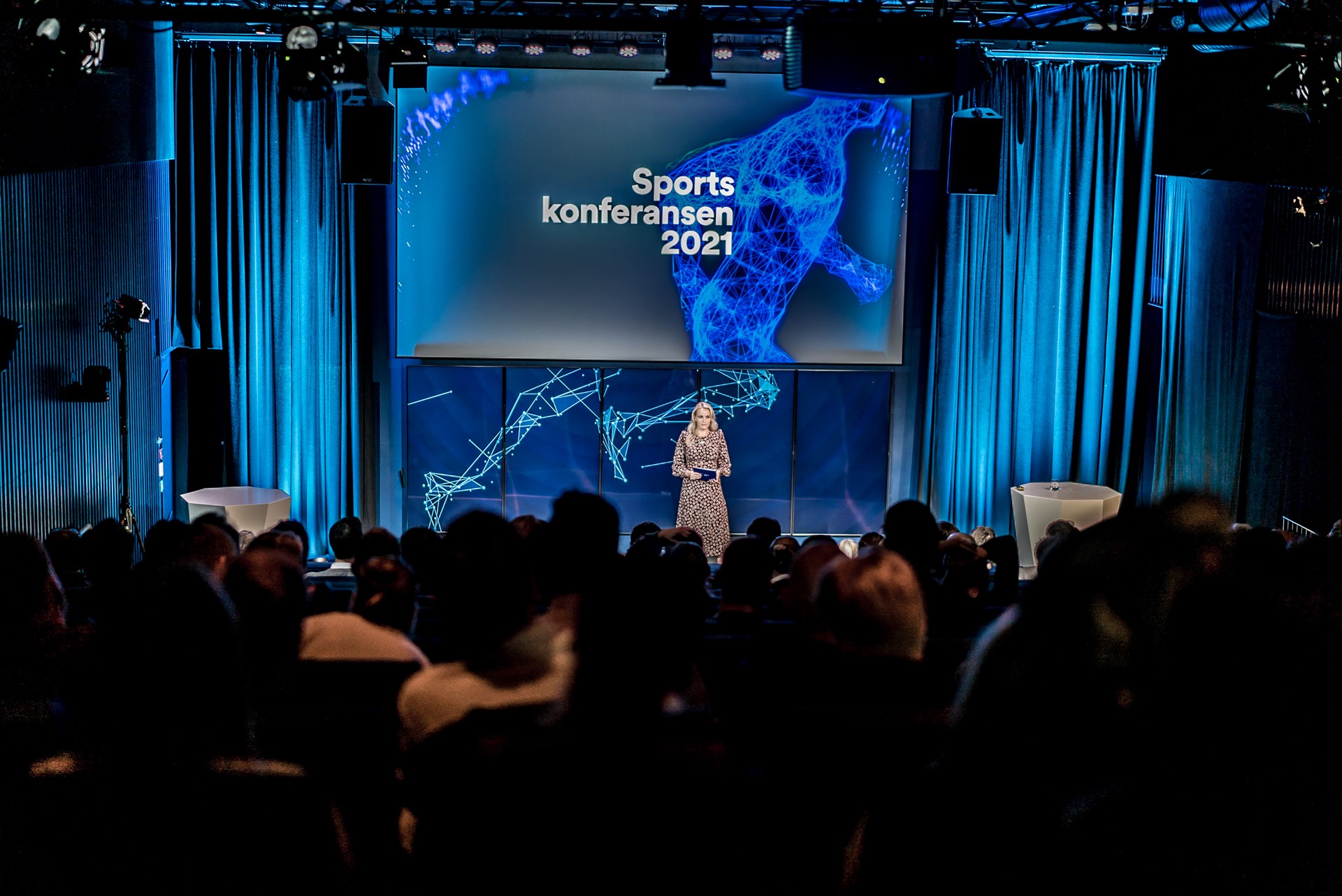
Thursday's biggest event was the first edition of the annual Conference on Sports Journalism, arranged by NCE Media, TV 2 Sporten, and Ennem, with several important discussions on the agenda, including the Qatar matter, the debate on the power shift in sports rights, and investigative journalism in sports. Guro Fostervold hosted the conference.
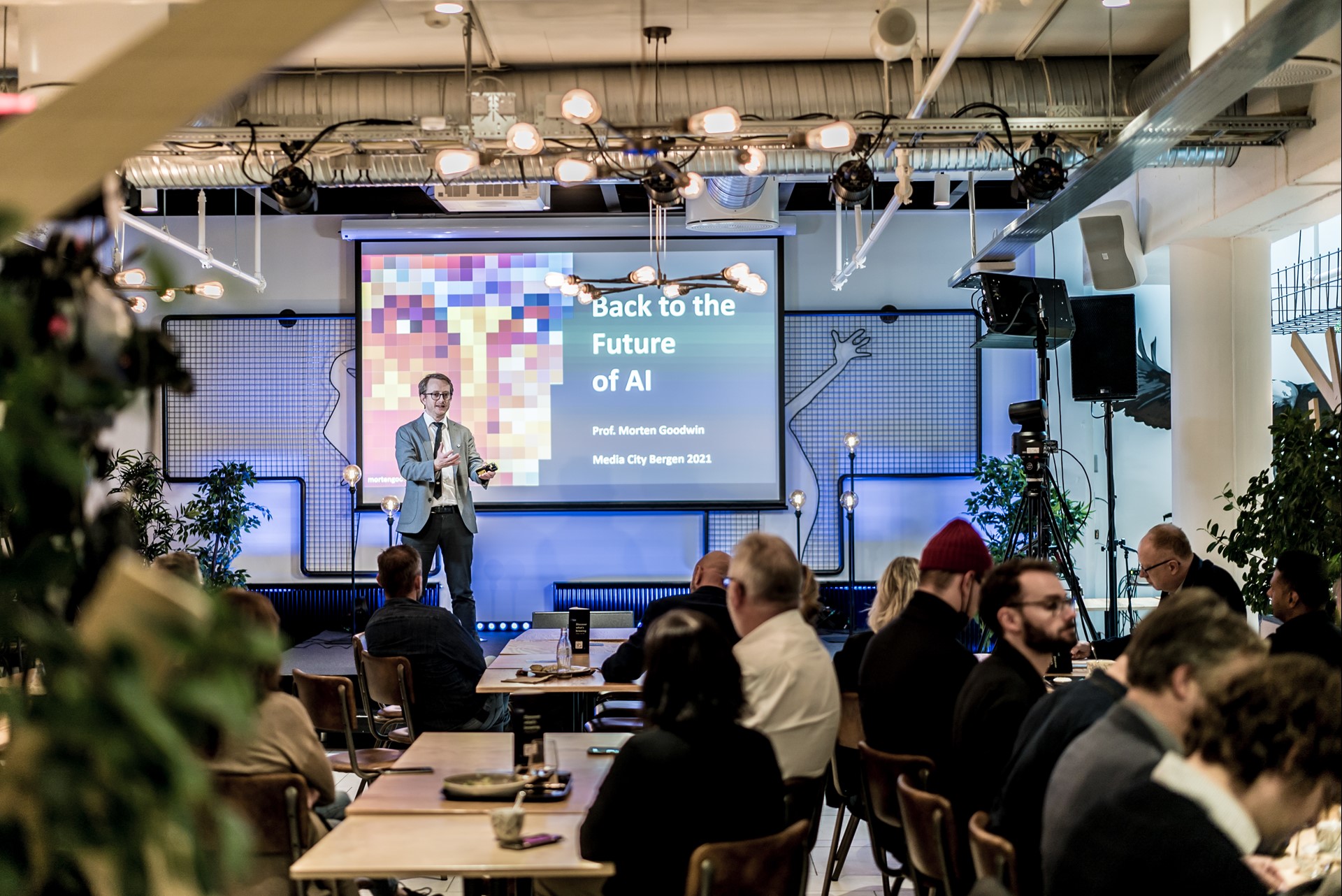
Morten Goodwin, Professor at the University of Agder and one of Norway's leading experts on artificial intelligence, held a keynote on the past and future of AI, followed by a workshop on the topic.
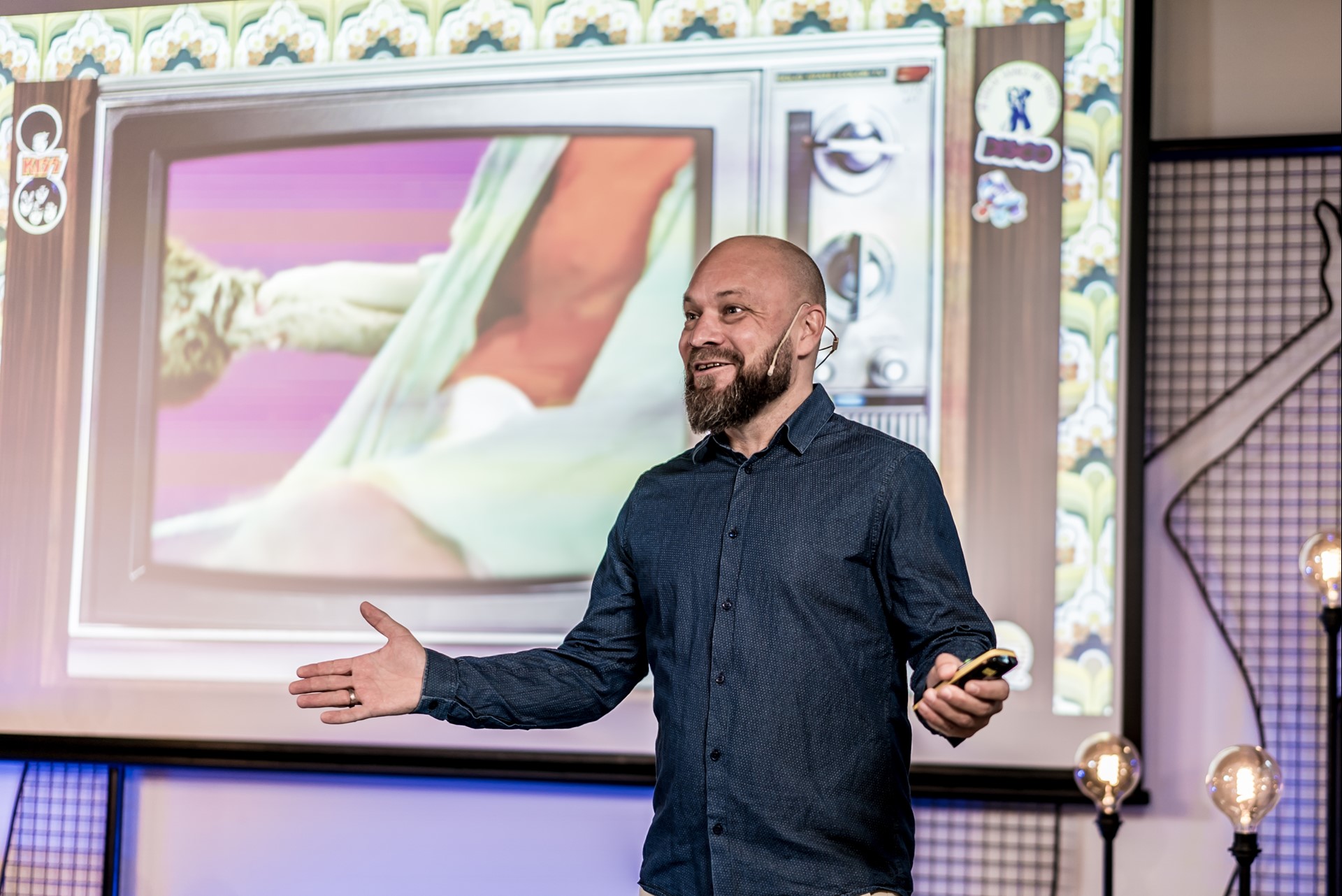
Anders Norås, in his always entertaining and inspiring way, took the audience through the history of computer music used in movies and video games. He introduced us to the pioneers who invented computer music, he visited classic video game soundtracks, taught the audience how computer musicians made big sounds with tiny tech, how algorithms create never-ending soundtracks, and the huge impact computer music has had on popular culture.
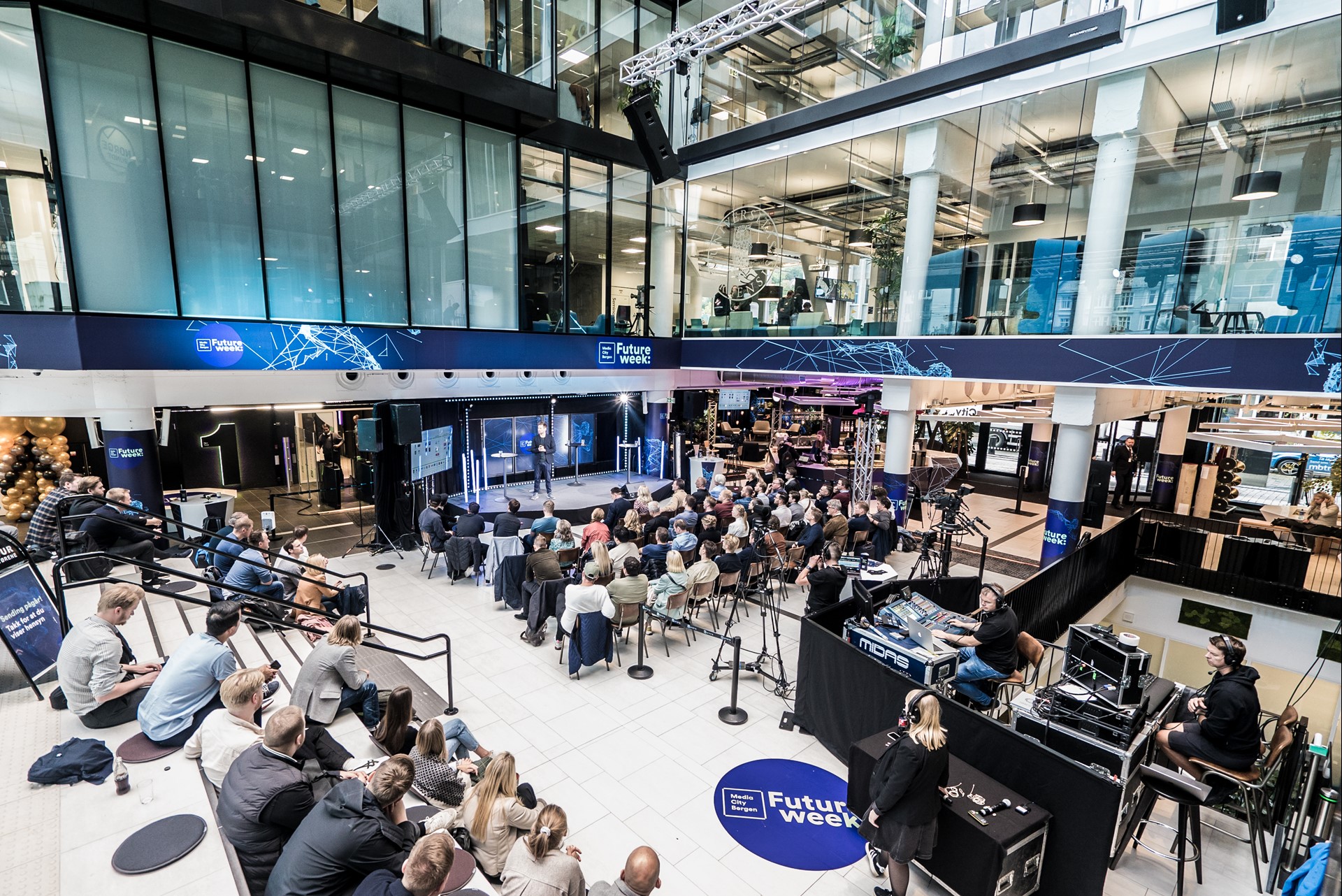
The debate on broadcast rights in sports was the closing debate at the Sports Conference, and was, to the benefit of everyone interested, moved to the MCB atrium for anyone to attend.
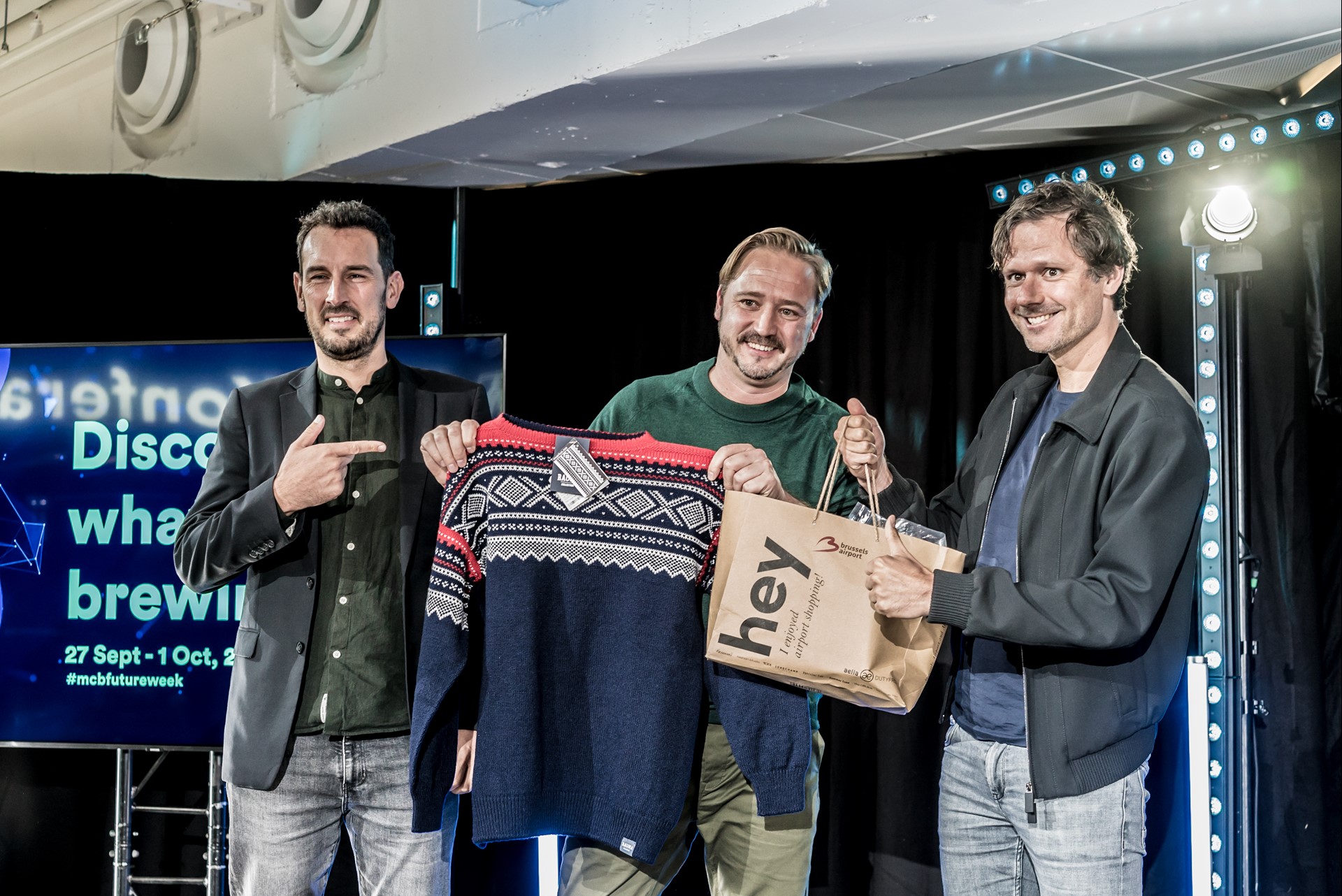
The scaleups from STADIEM competed in their own Future Week pitching contest, where they pitched their innovative solutions for next-generation media. The AI-driven strategic intelligence platform Trensition won the best pitch.
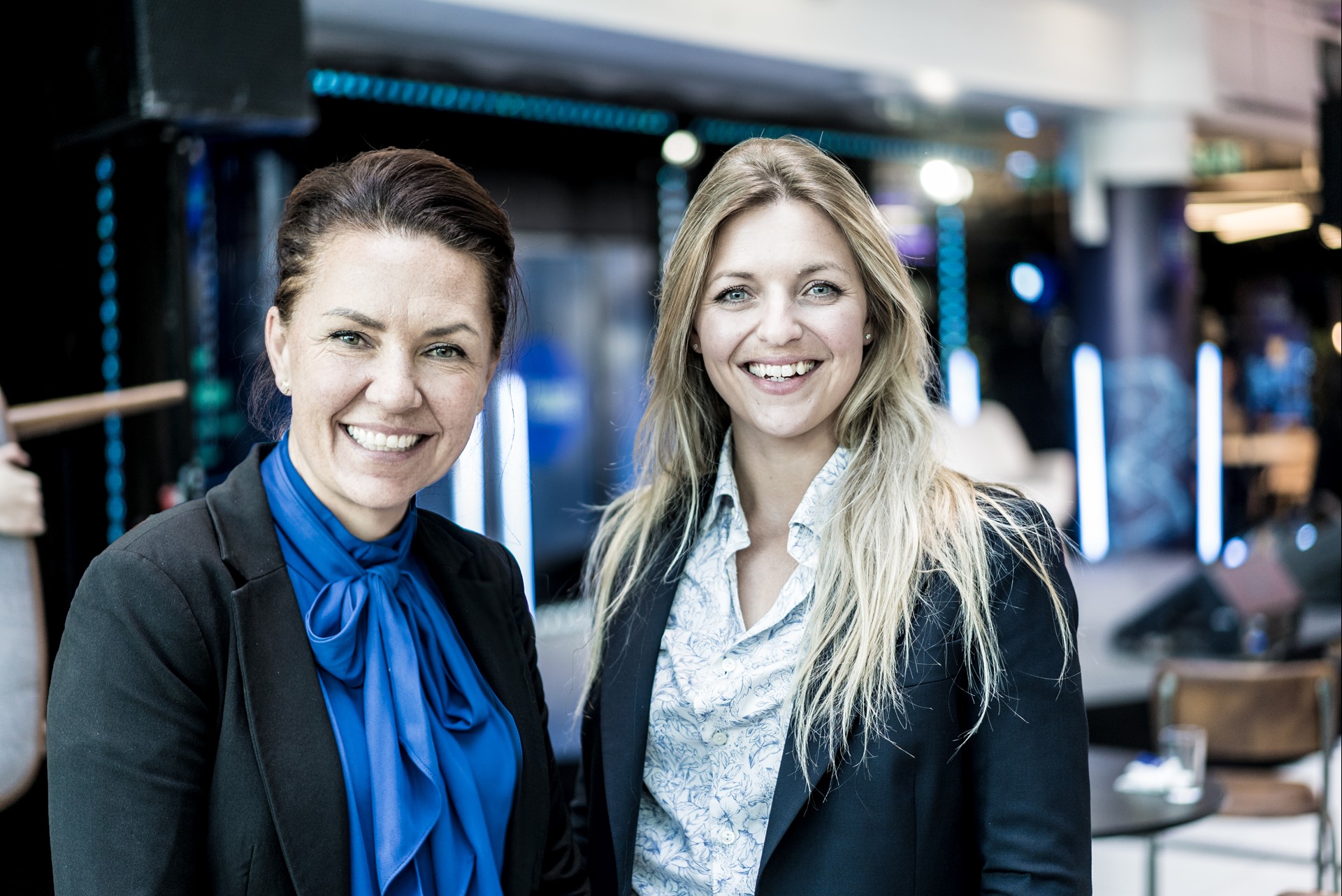
Kathrine Resen Drud and Anne Scheel Nordestgaard Dyrehauge from Media City Odense participated in many events during Future Week. Dyrehauge also entered the stage to talk about Media City Odense, with ambitions to become Denmark's most innovative and value-creating media tech cluster.
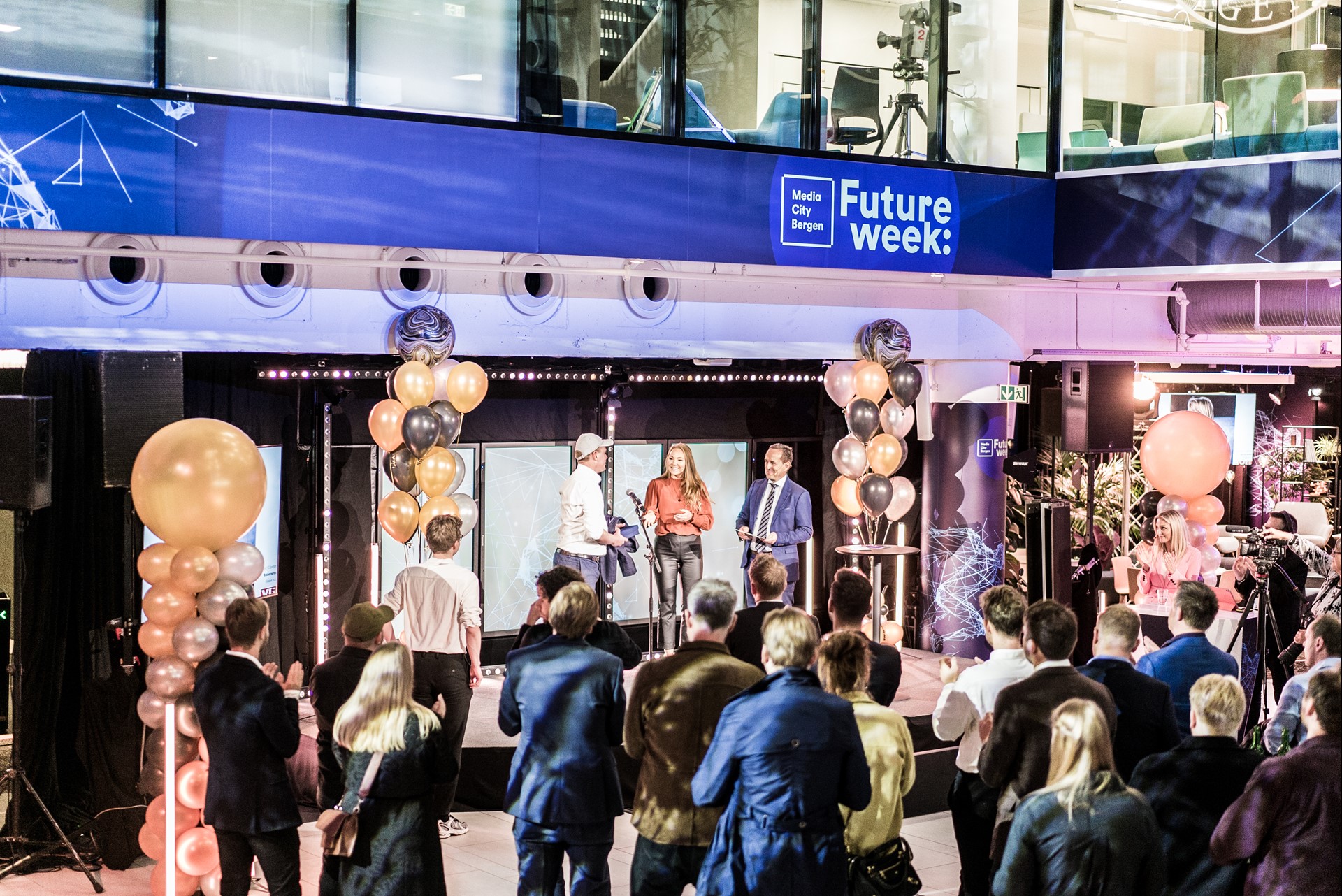
Thursday evening, the Sports Awards was the perfect event to wrap up the Sports Conference. Here, people gathered to celebrate sports journalism and the accomplishments from the last year.
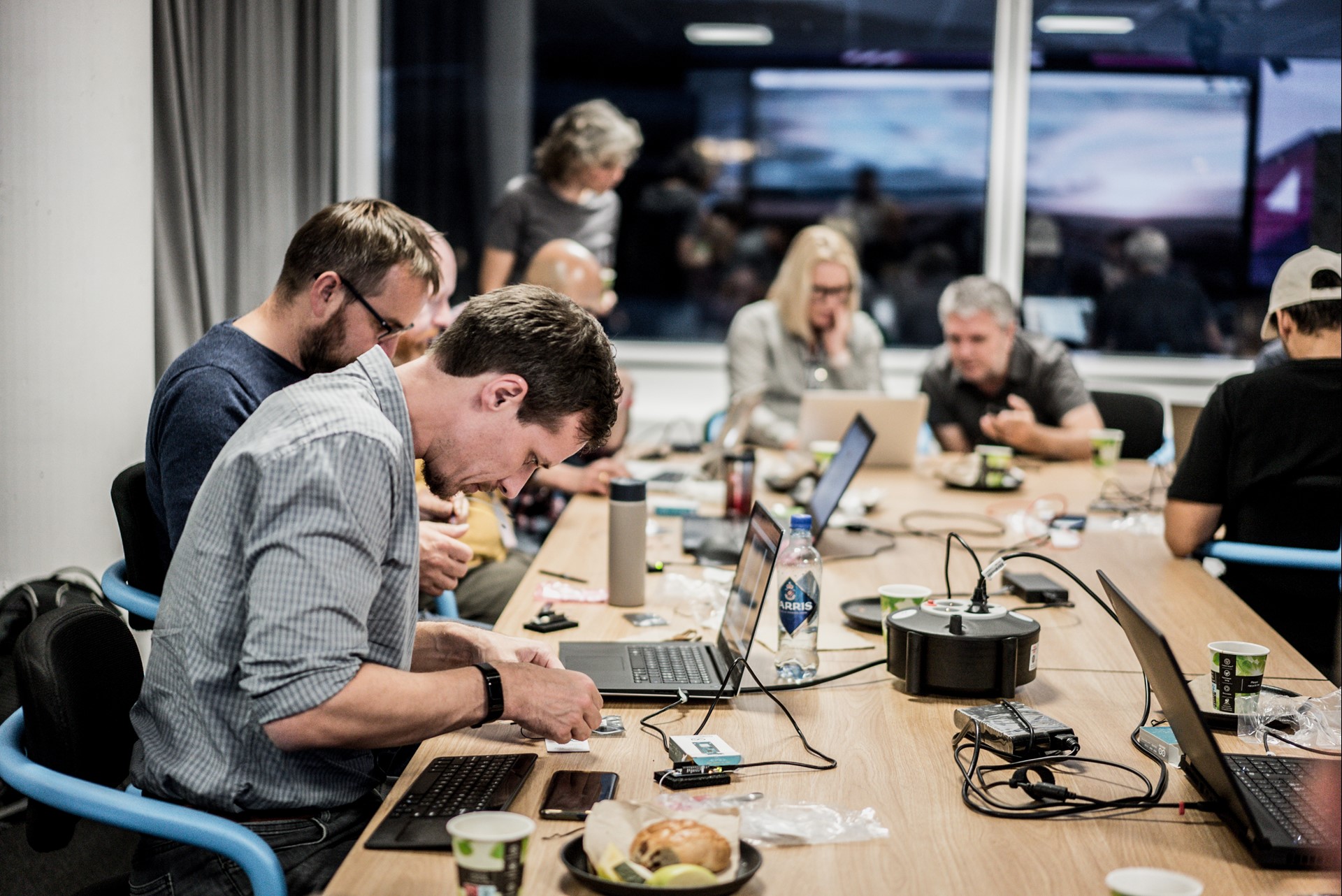
The "Measure your city" workshop was fully booked! With guidance from Harmen G. Zijp and Diana Wildschut (De WAR, the Netherlands), participants got their hands dirty with soldering microchips, transistors, and resistors into a fully functioning IoT weather station they could then bring home.
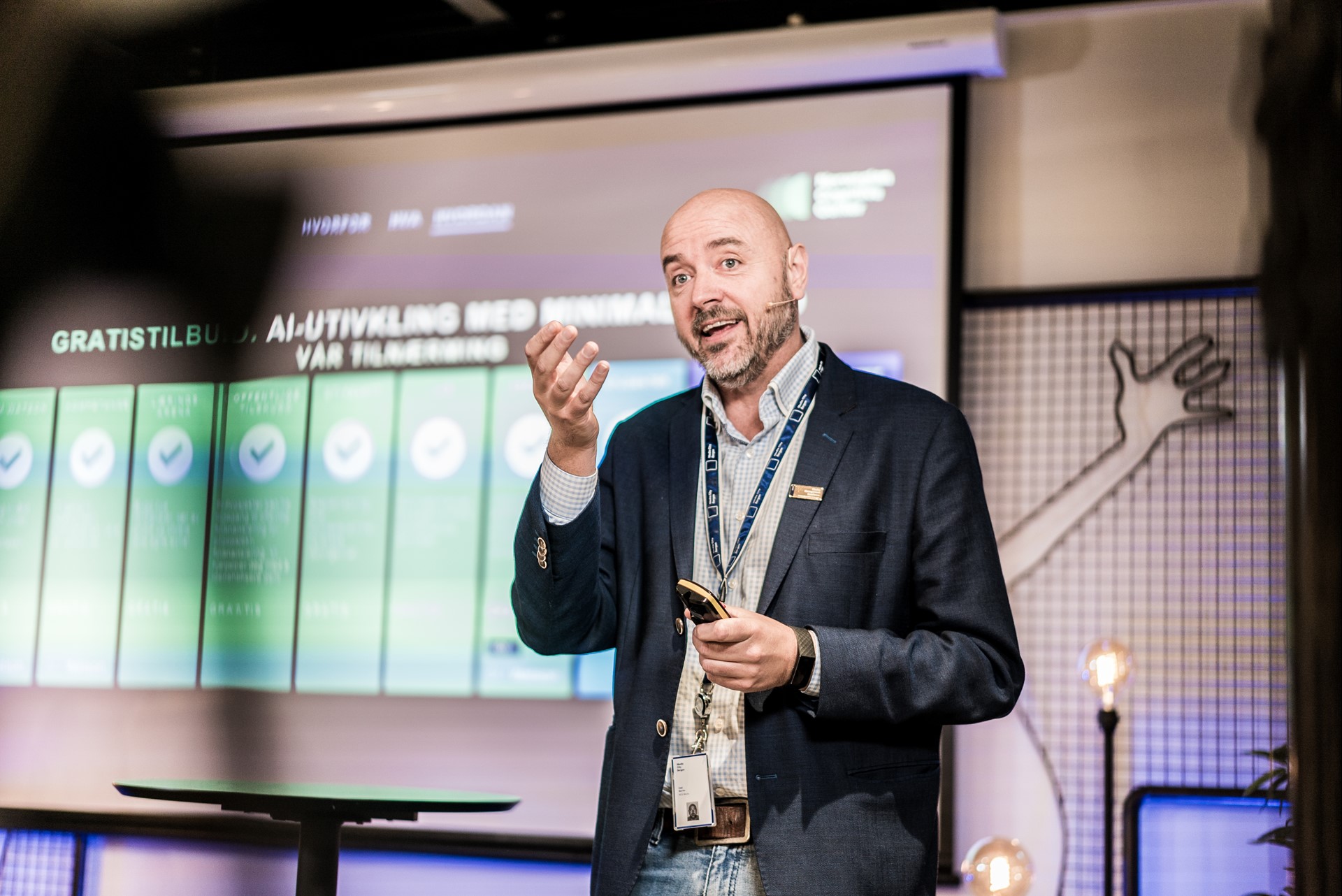
Odd Gurvin (Norwegian Cognitive Center) on how to establish tools for investigative journalists where AI can streamline and simplify the journalist's work.
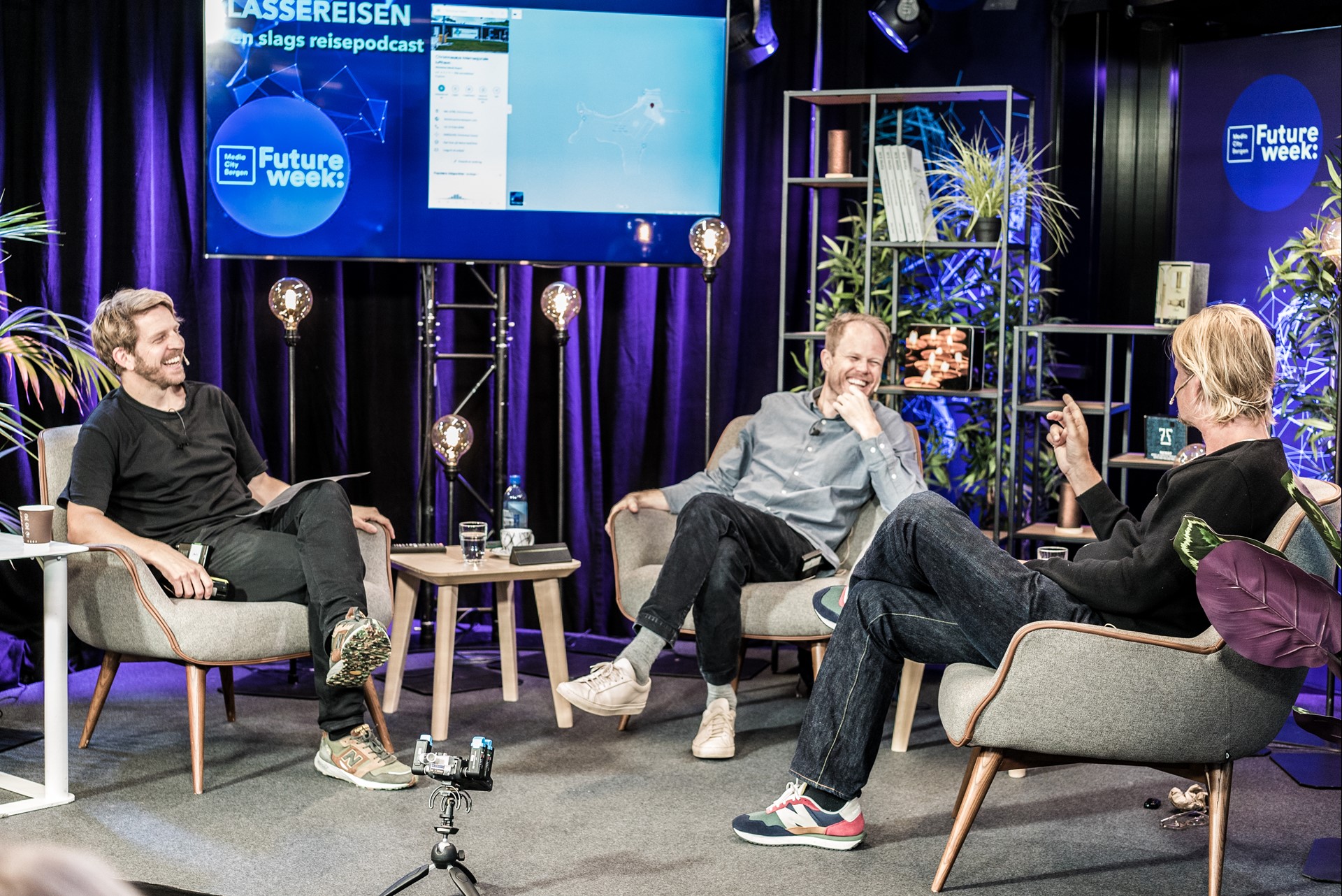
Kaspar Synnevåg and Henrik Hylland Uhlving interviewed Bent Skjærstad (TV 2) in their Live Podcast Klassereisen. An entertaining session perfect for the casual vibe at the Dallucci stage.
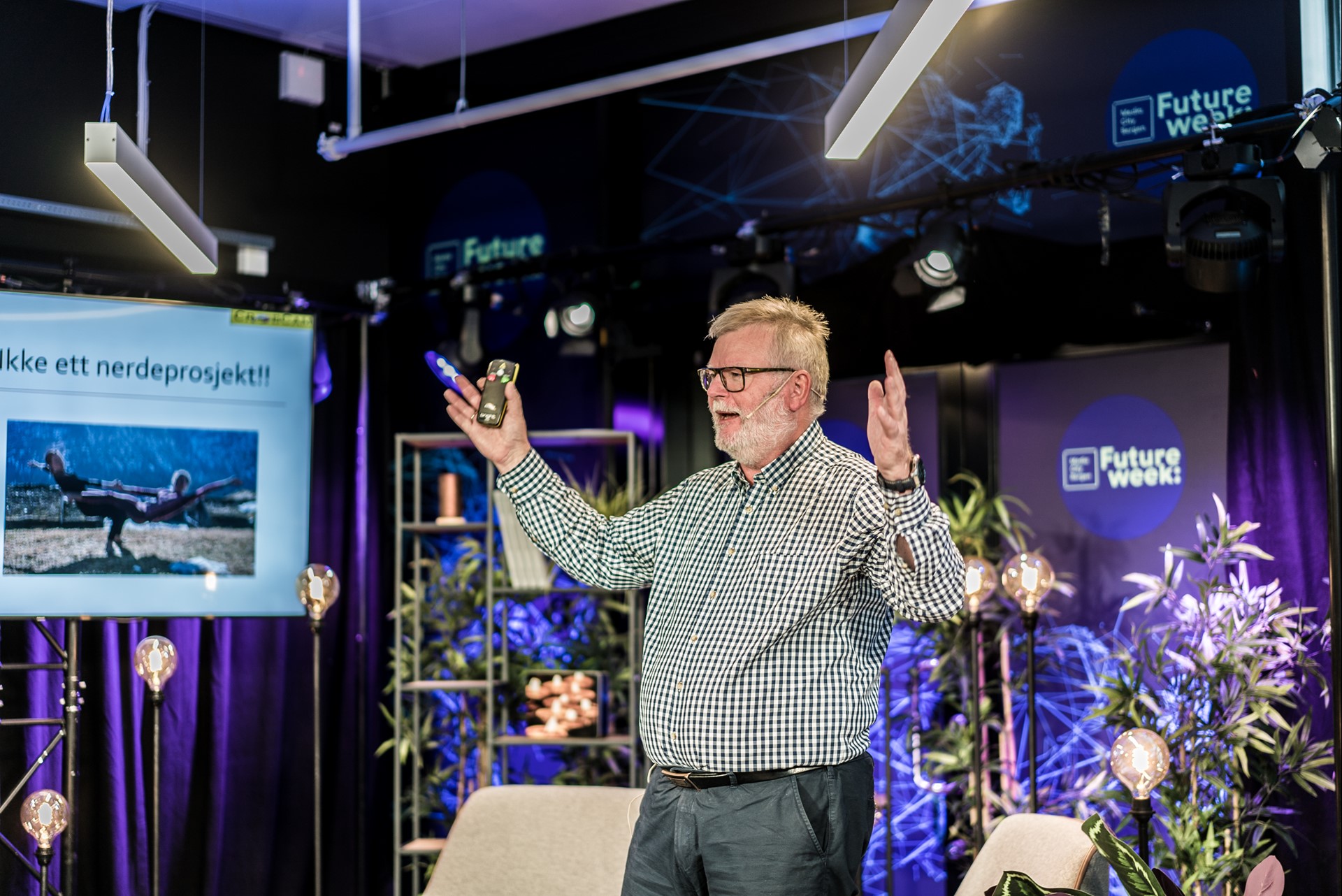
Crabs are tastier than lobster, and even smarter too! These were the words from Petter Ole Jakobsen as he presented his own kind of Slow-TV; CrabCam. At his cabin in the fjords of Norway, Jakobsen has installed a state-of-the-art system to monitor his crab trap, continuously updating it to make CrabCam a great experience.
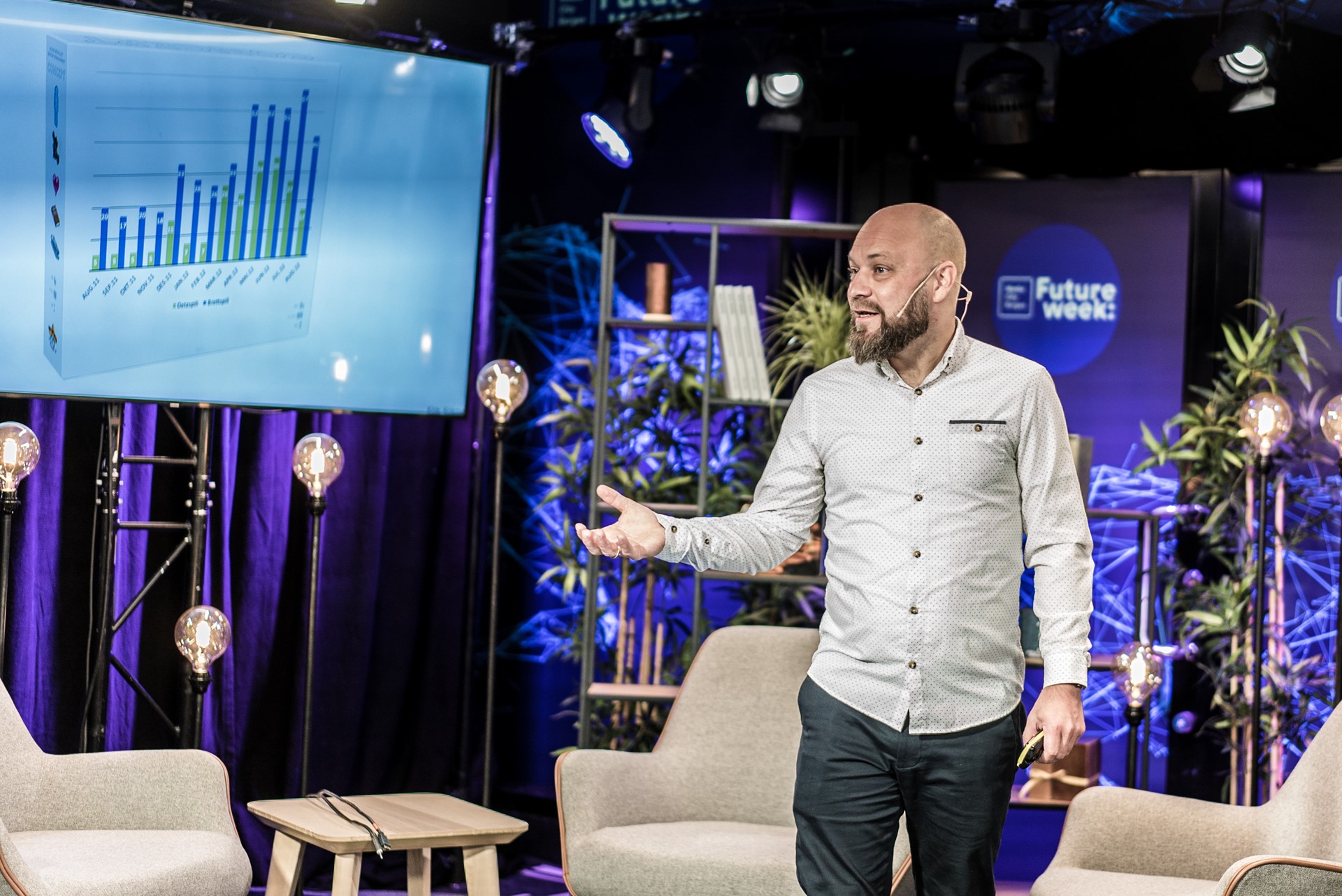
Analog technology is trending again! By popular demand, Anders Norås were back at Future Week to talk about analog solutions that evoke emotions and nostalgia, and provide better experiences than their digital versions.
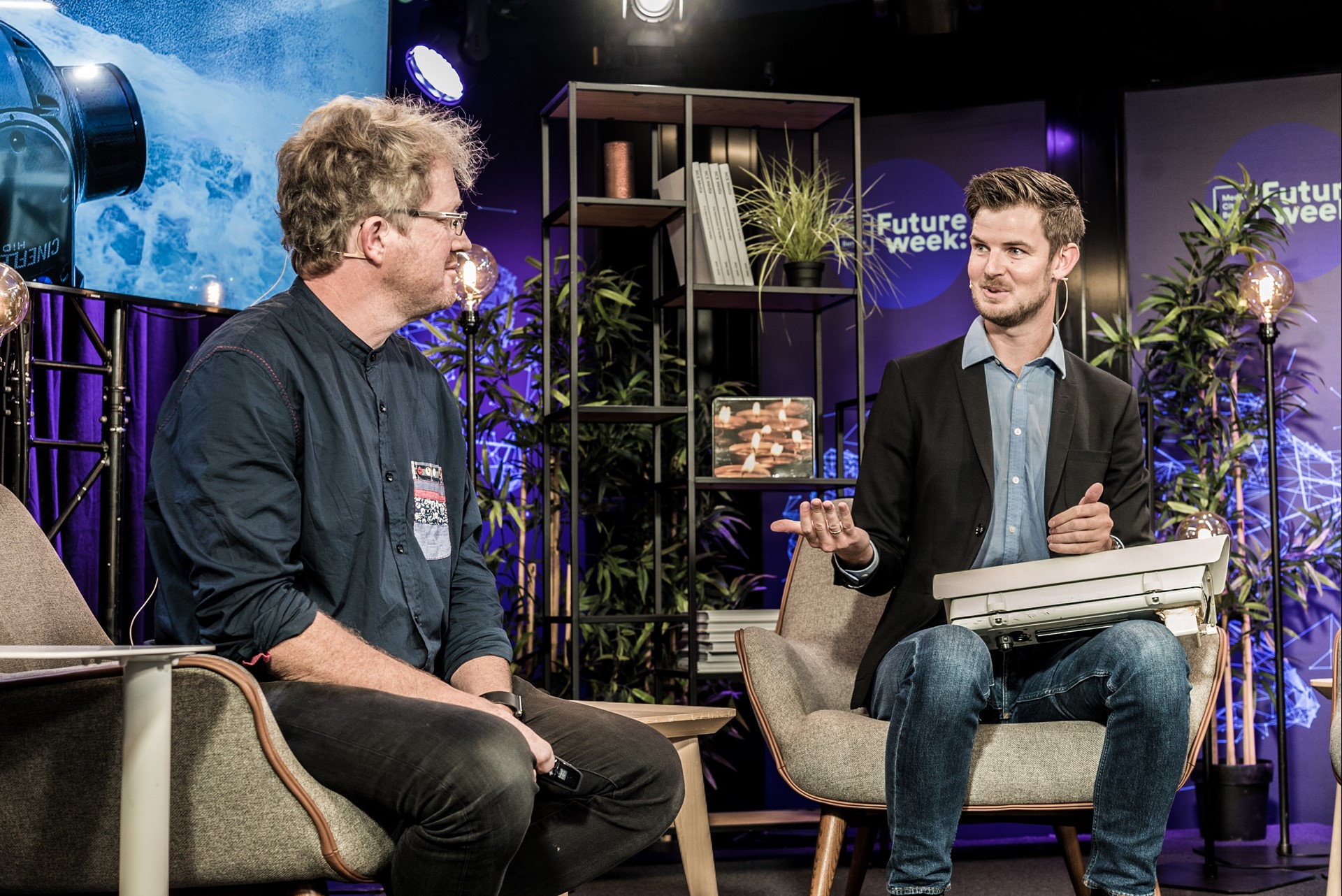
The pioneers in slow-TV, Thomas Hellum, and Sindre Skrede (NRK) gave a talk on innovation and daring to fail, and showcased examples from their most recent project; "Sommerskuta".
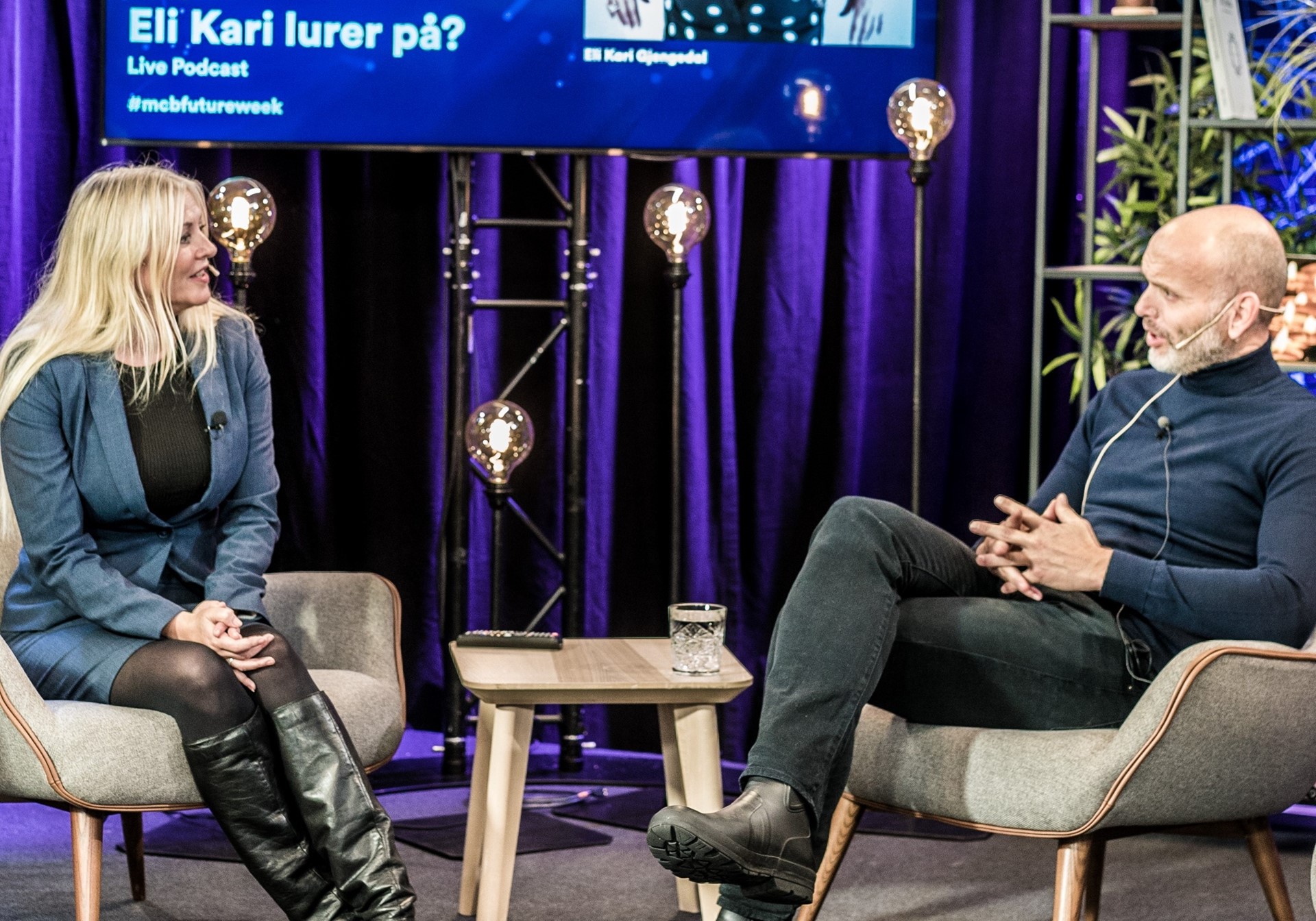
Eli Kari (Scary Weather) held a live session of her podcast "Eli Kari lurer på?". This time she interviewed Haakon Vatle, chief of the Foundation Statsraad Lehmkuhl, about One Ocean Expedition, and the challenges and joys of living on a sailing ship.
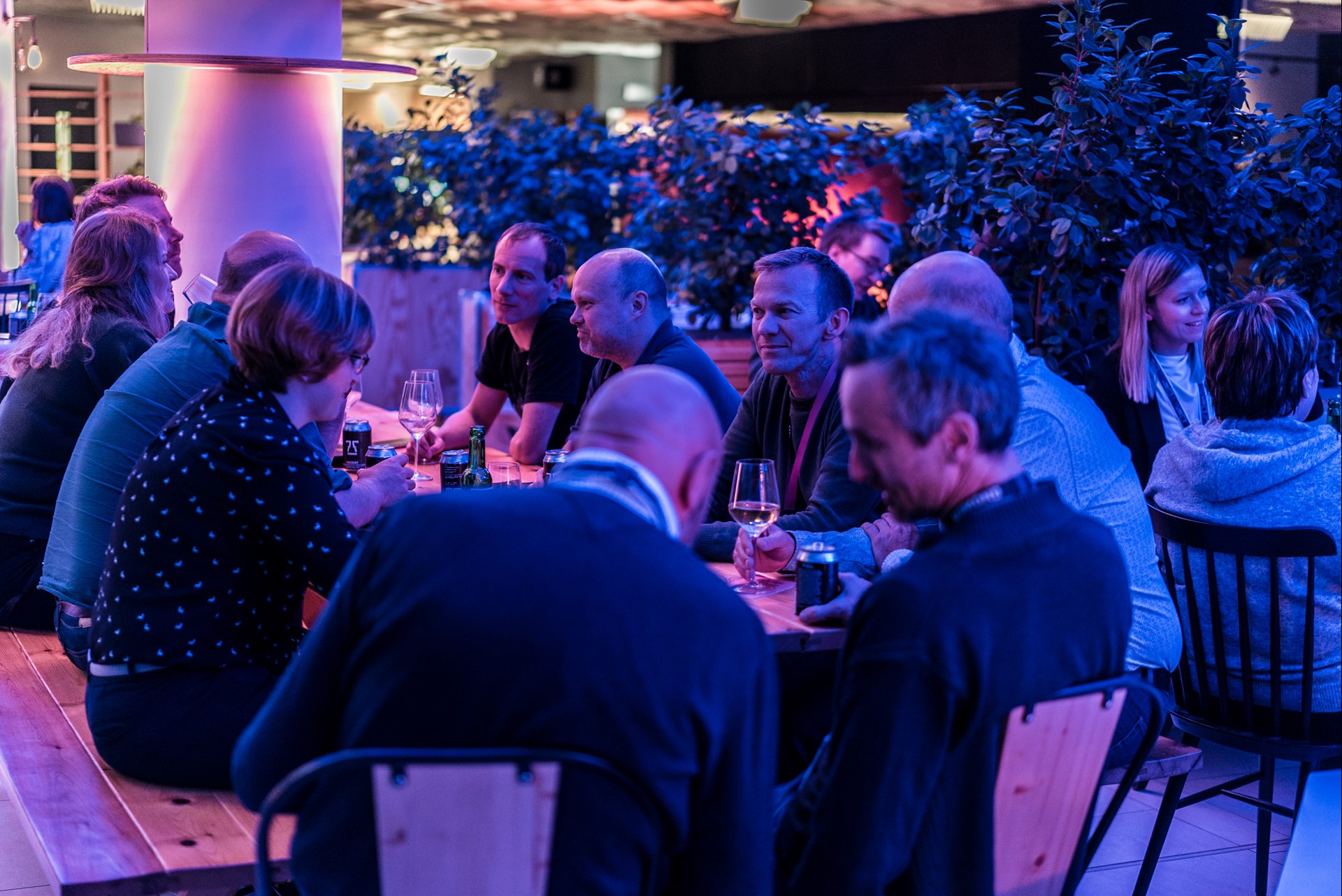
Happy to meet again! Future Fest was a party to remember, where we celebrated this extraordinary week, and everything we got to learn and experience.
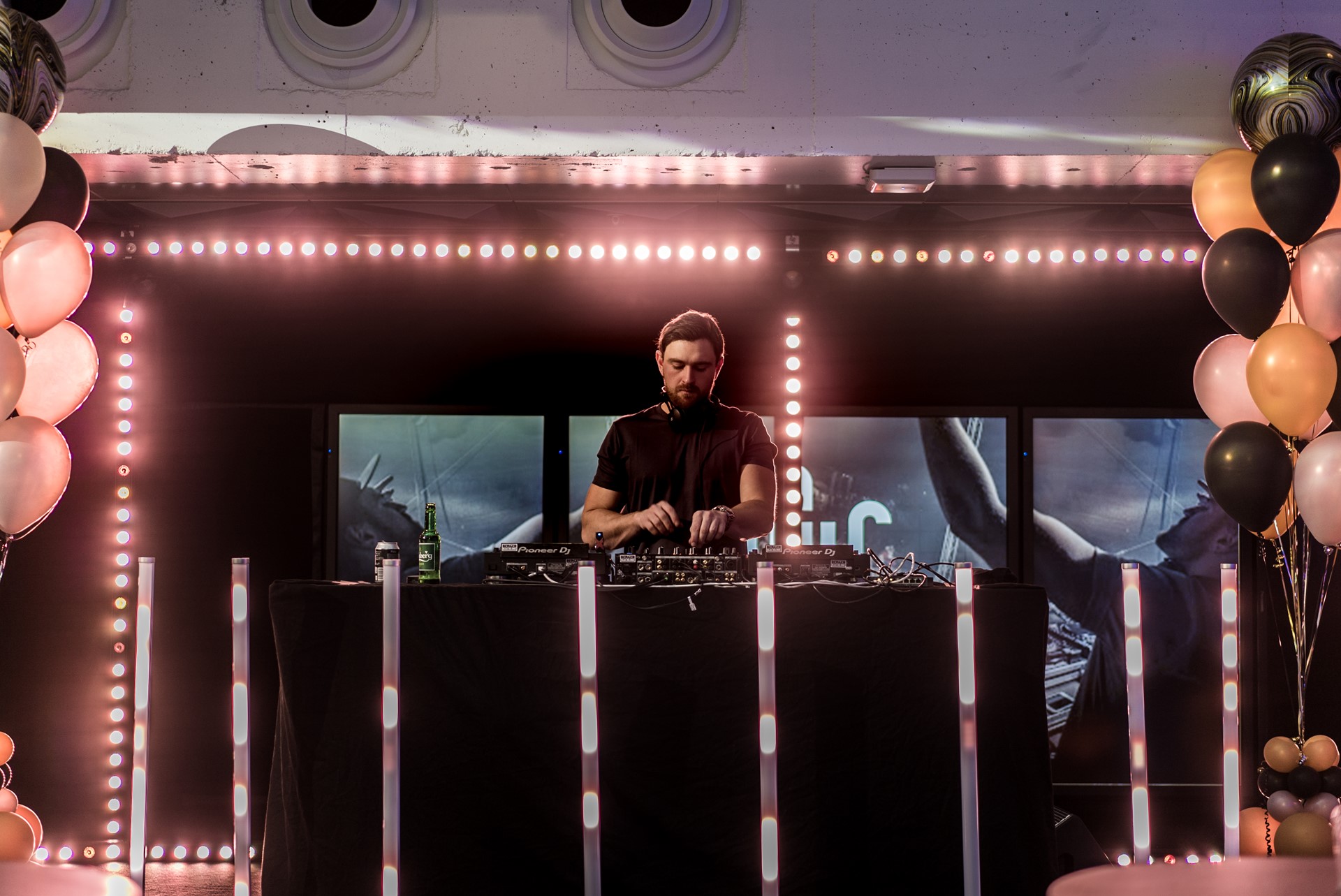
DJ SJUR provided a good Future Fest atmosphere.
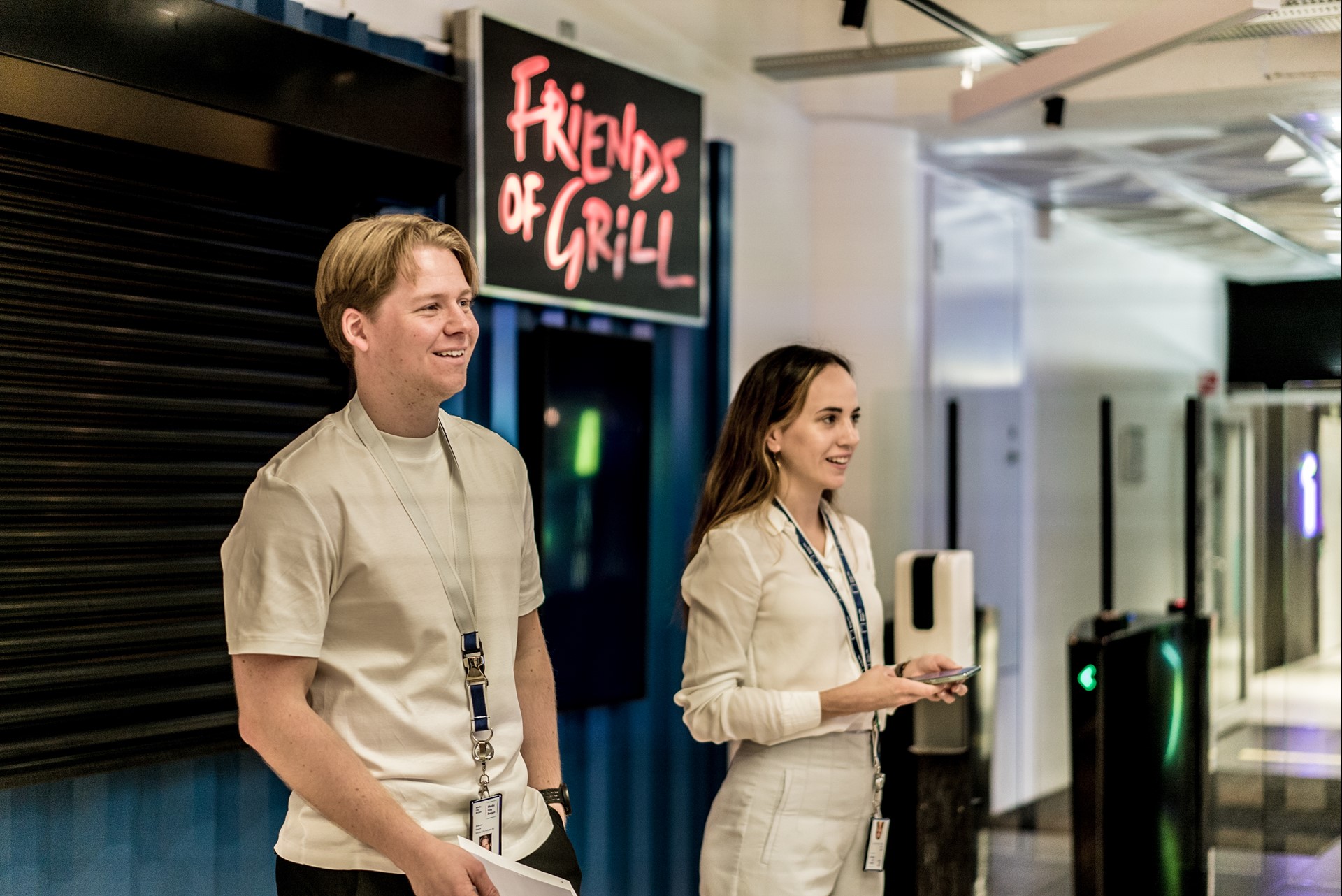
The invaluable interns at NCE Media, Andreas Kolseth and Maria Krakus.
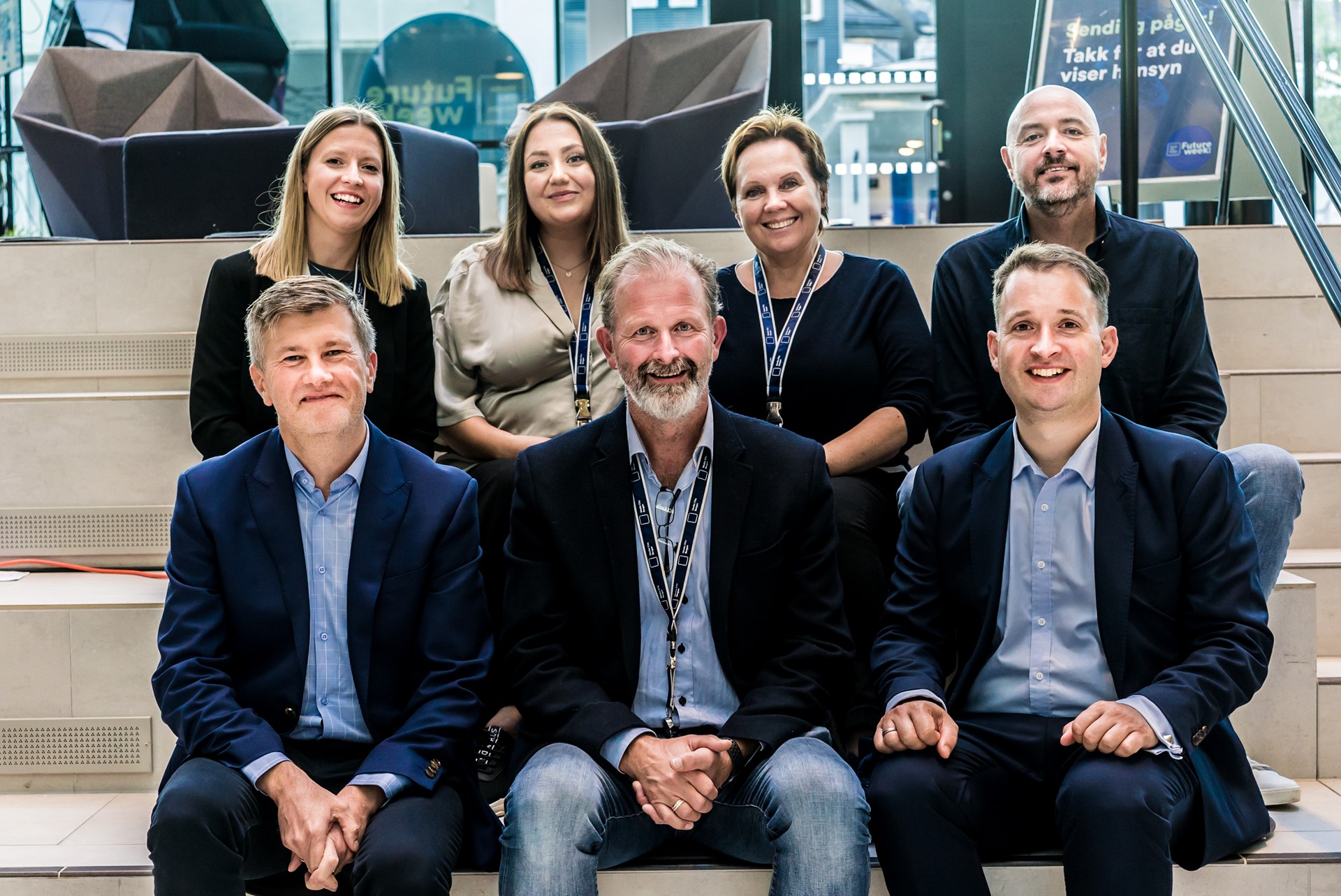
The NCE Media team: Charlotte Vindenæs, Marianne Fjellhaug, Anne Jacobsen, Odd Gurvin, Kristoffer Hammer, Einar Kaslegard and Ketil Moland Olsen.
Thank you to all of you that visited and contributed to Future Week 21. We are already looking forward to seeing you at Future Week 22!
